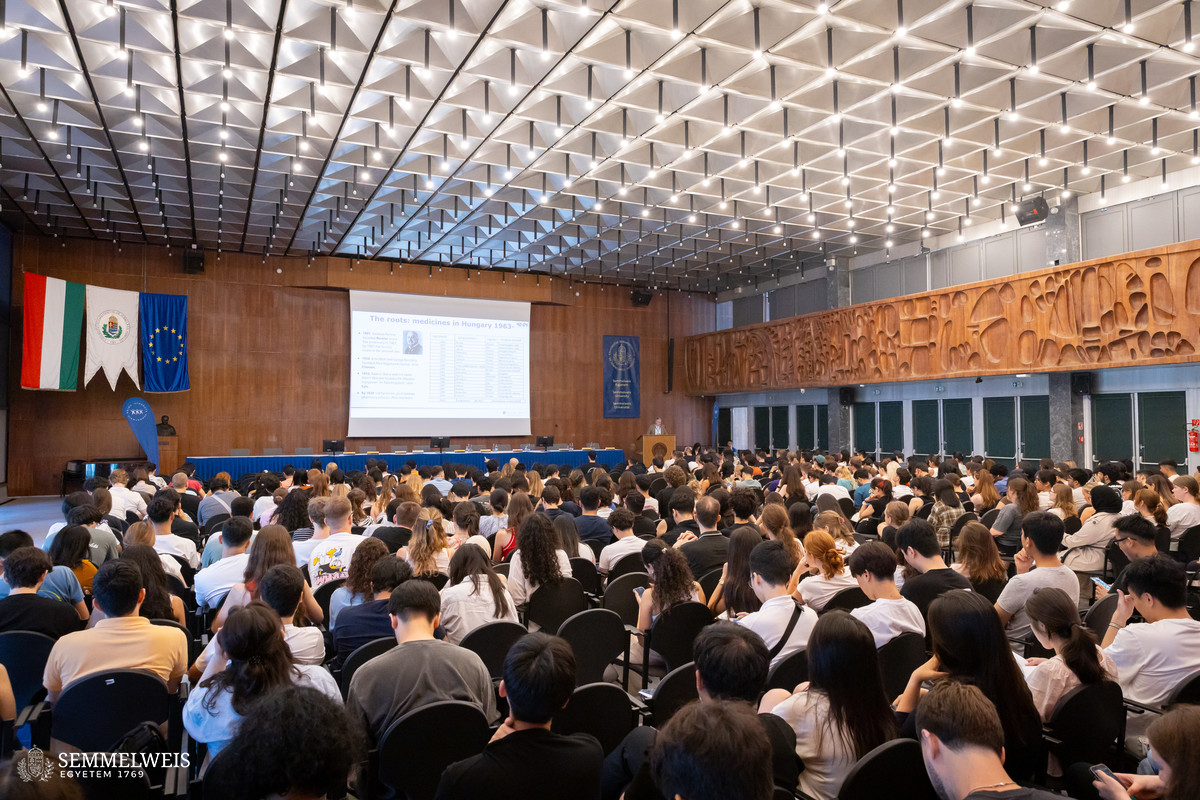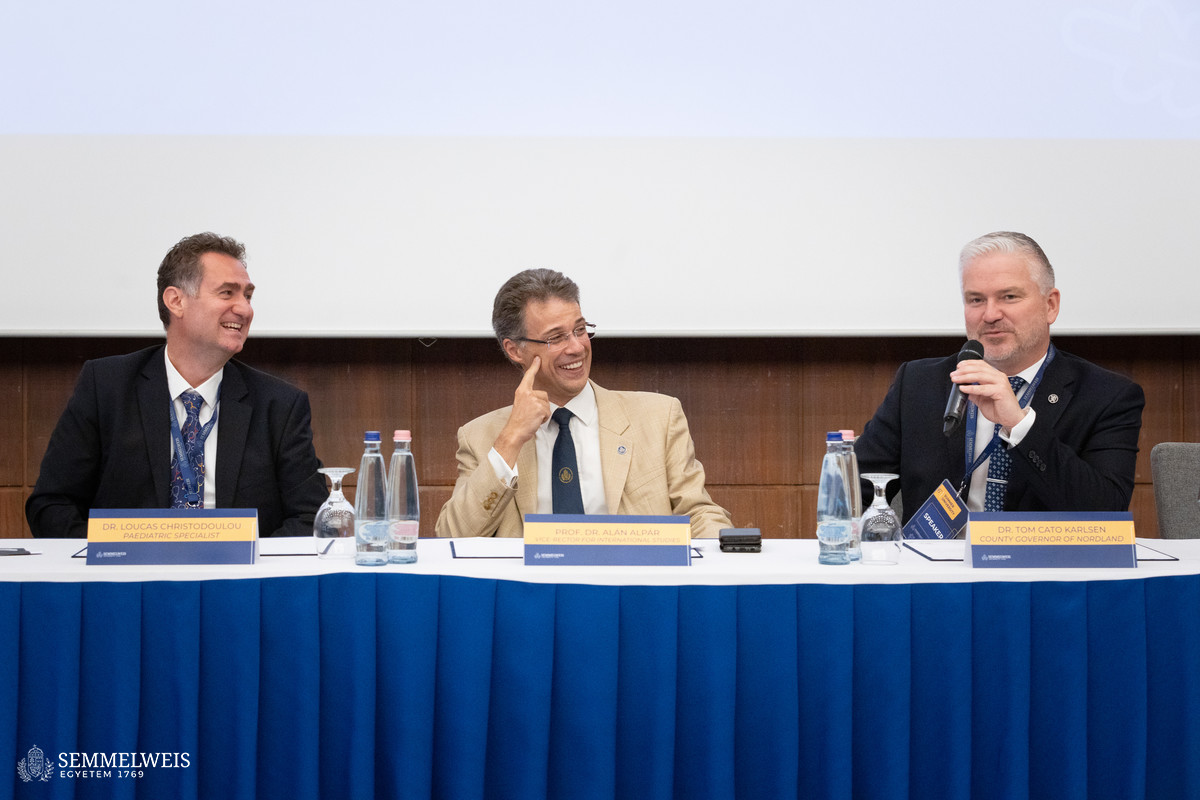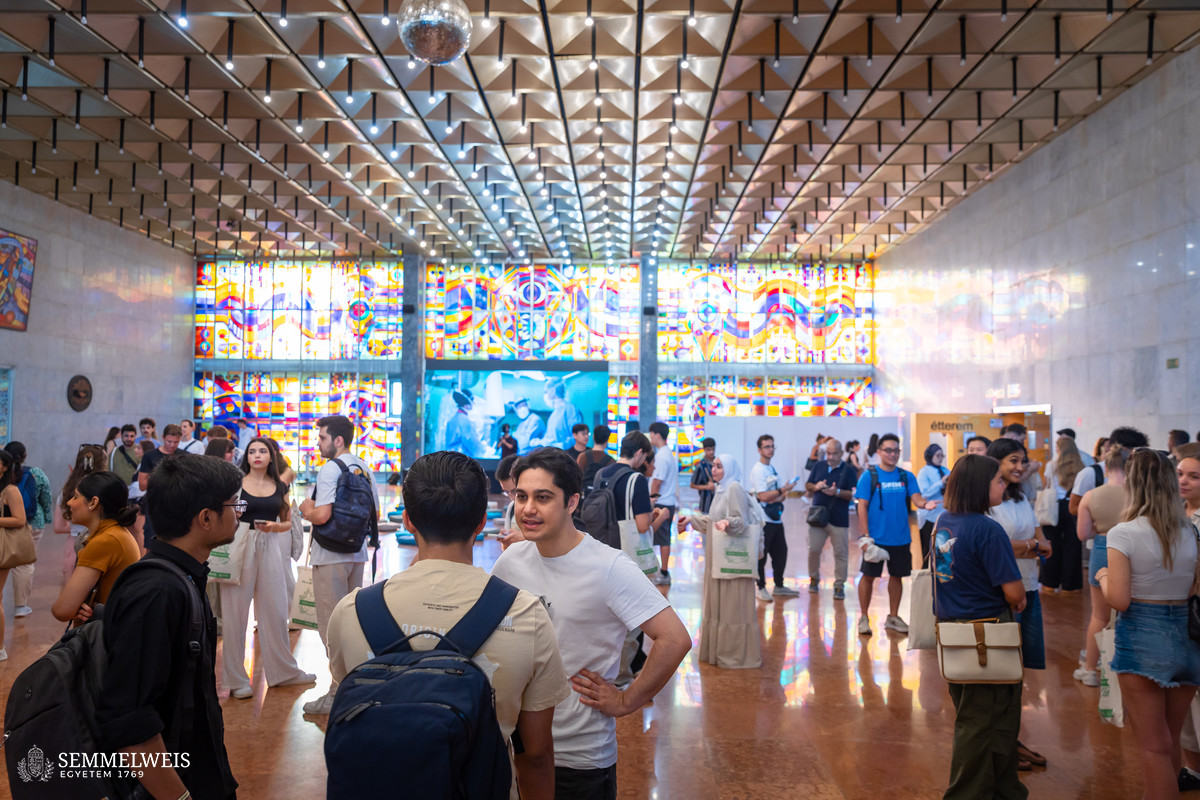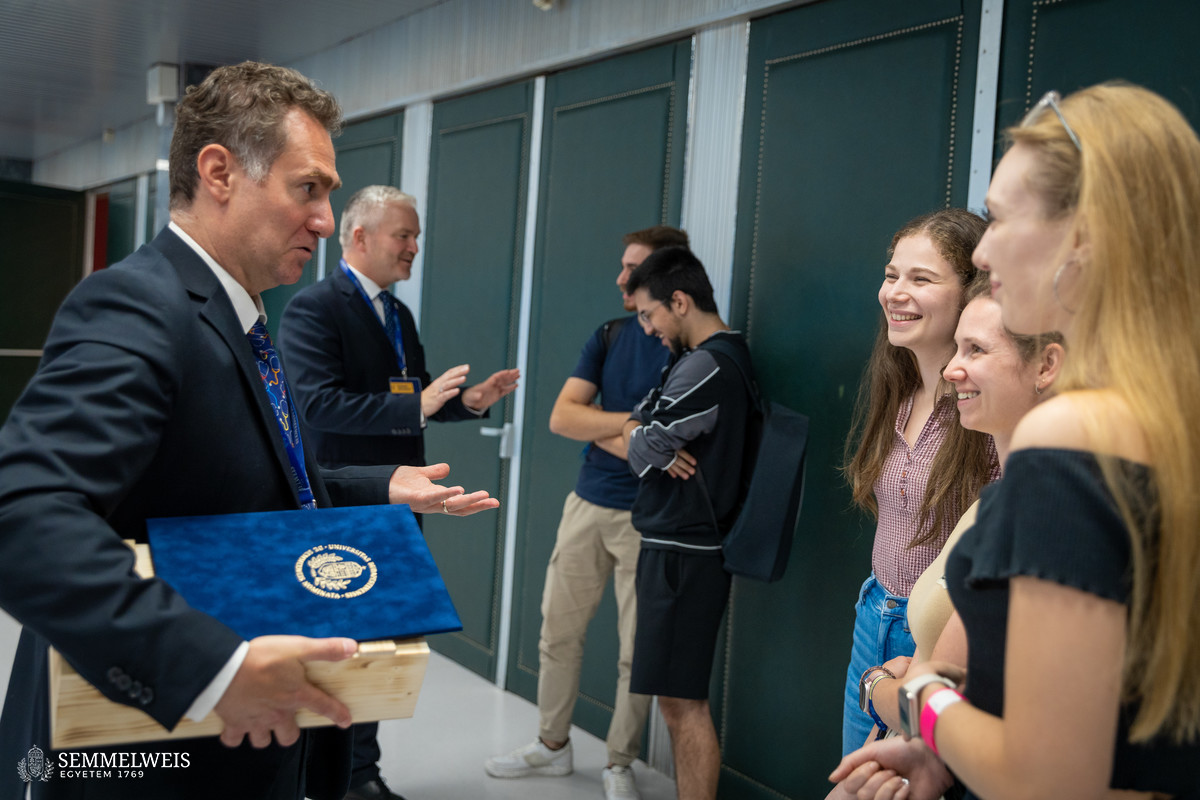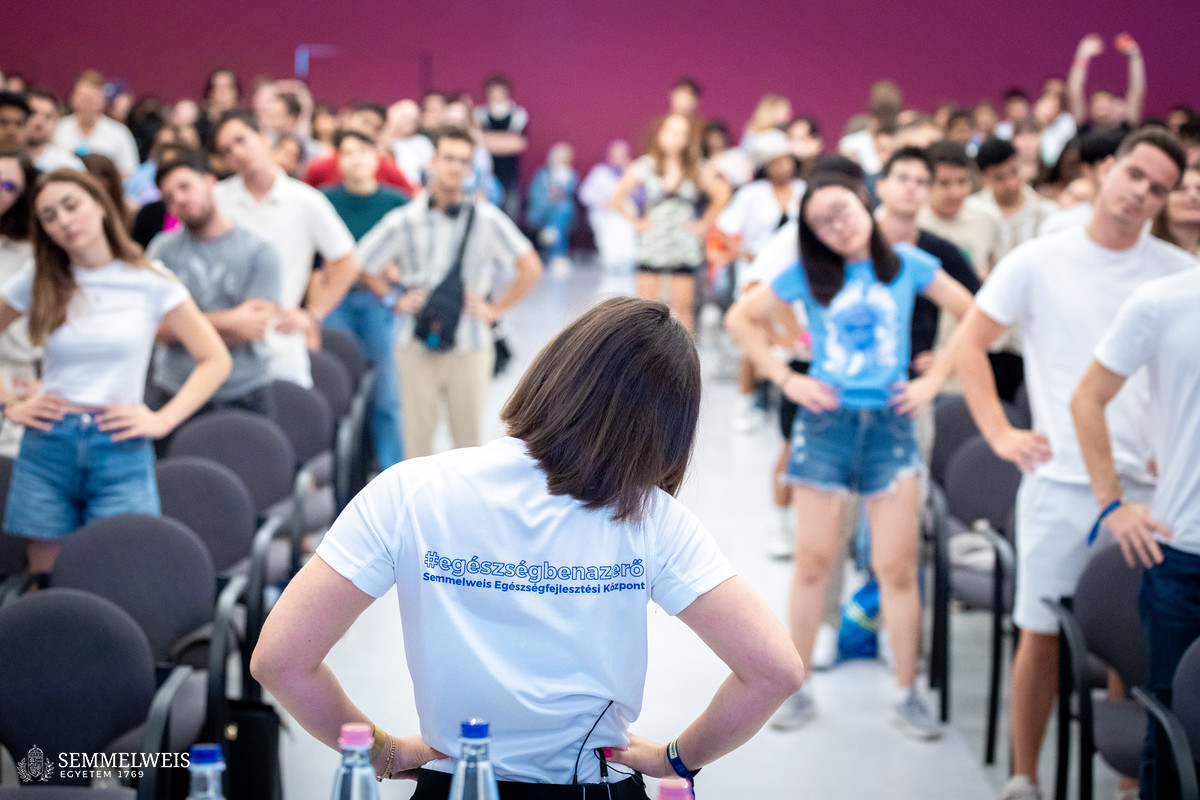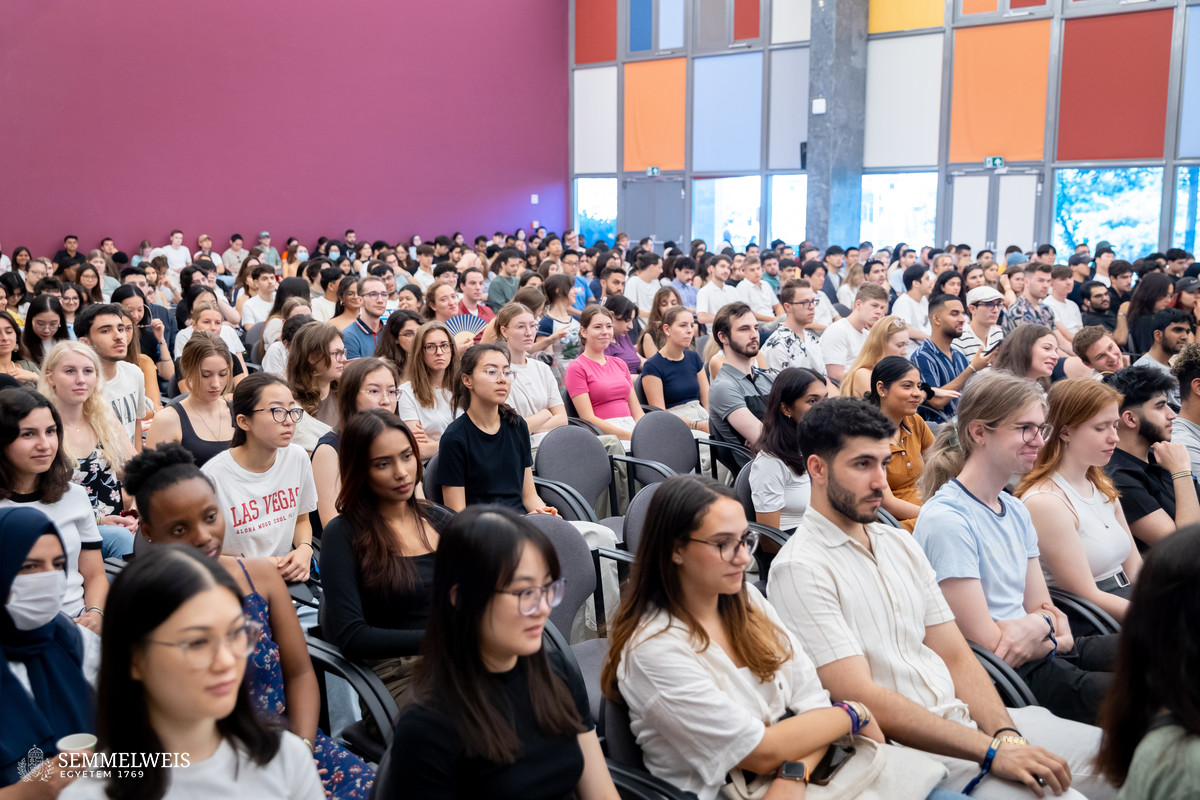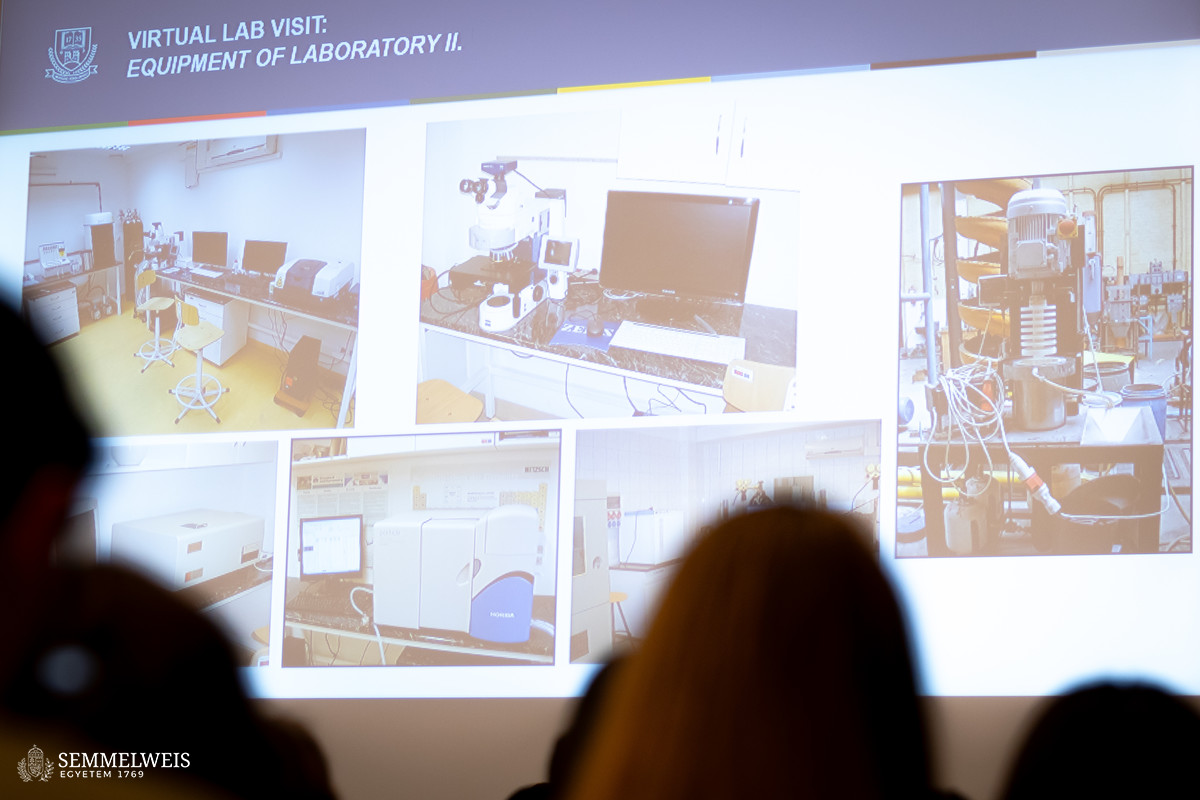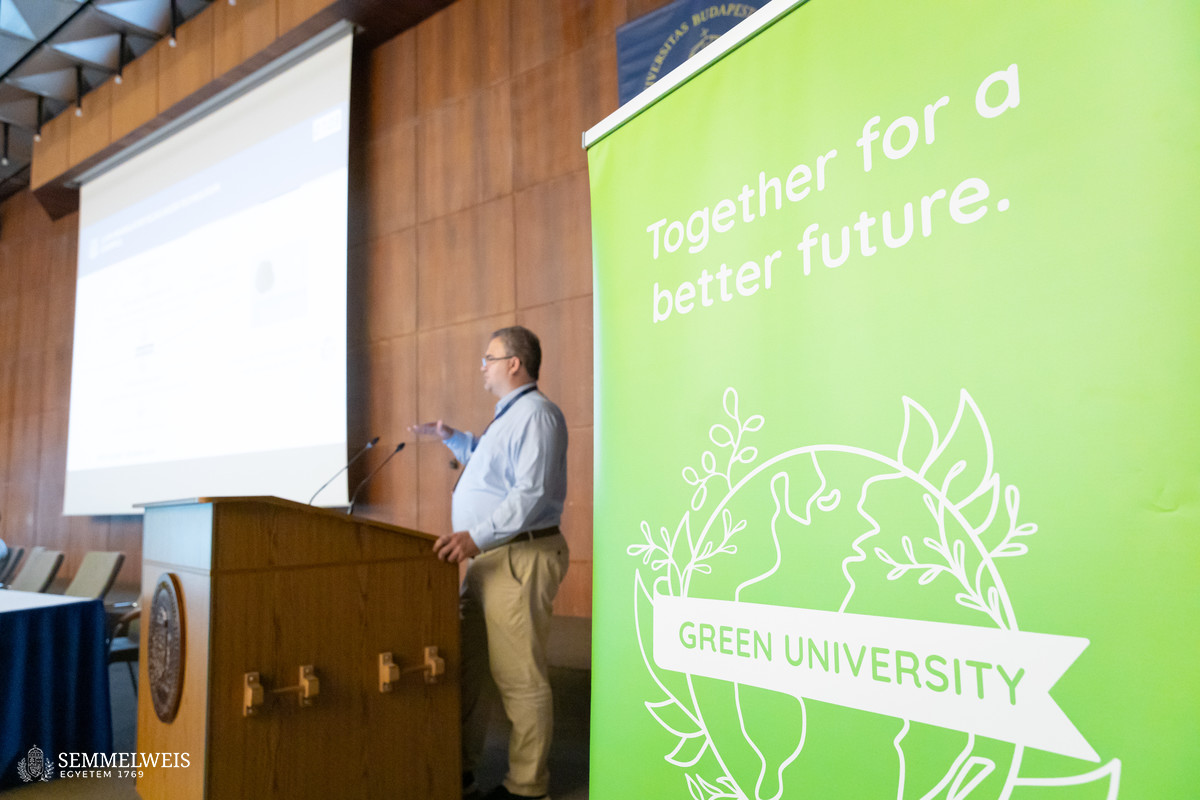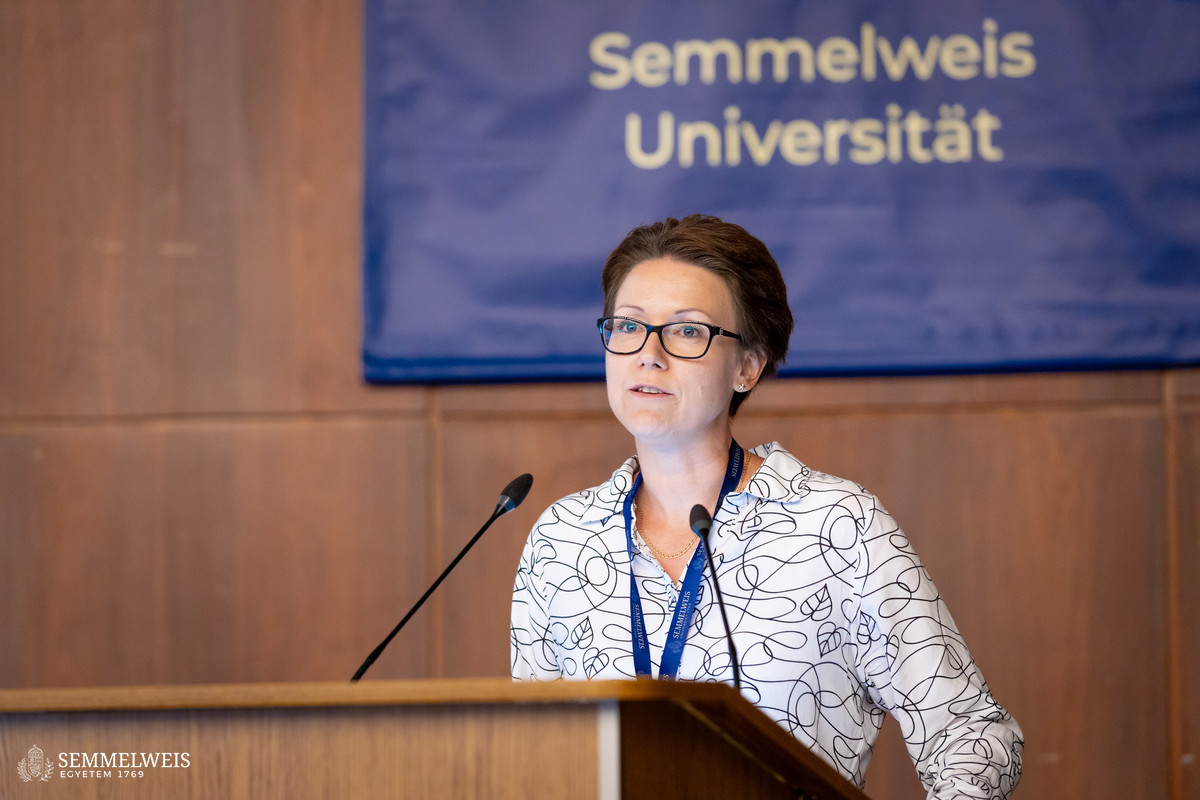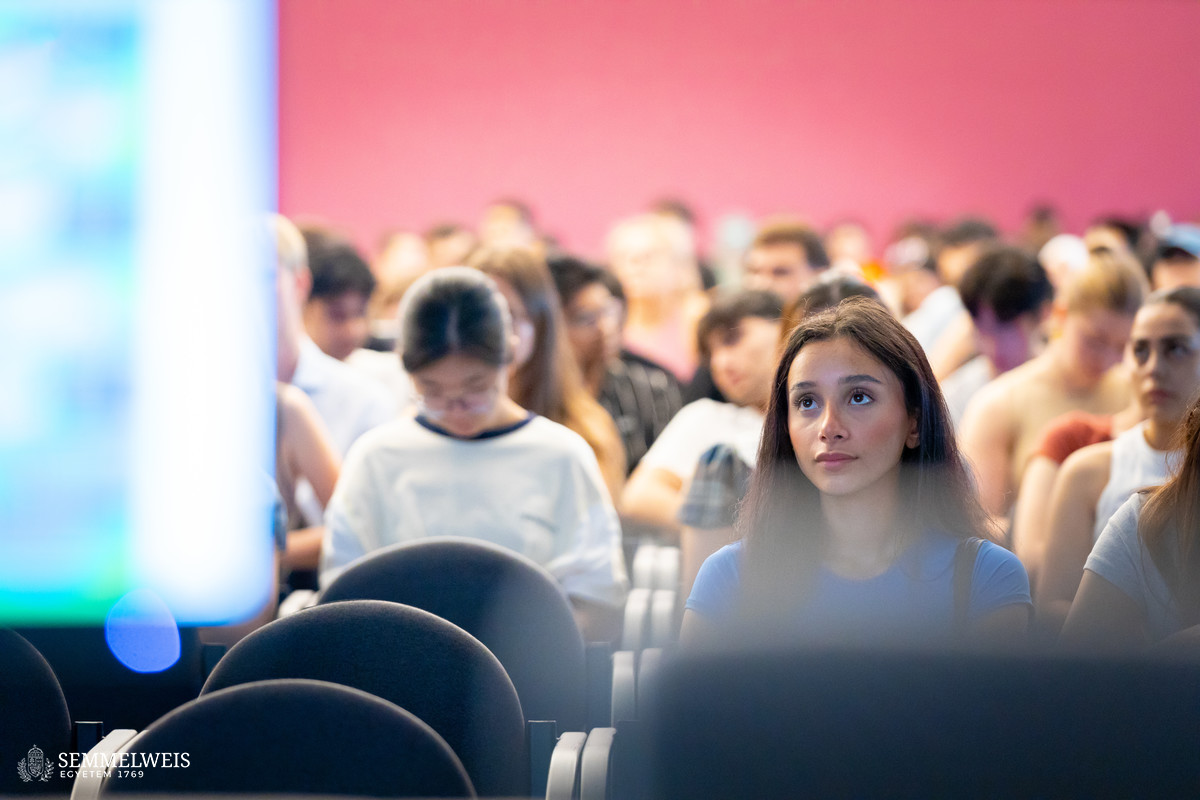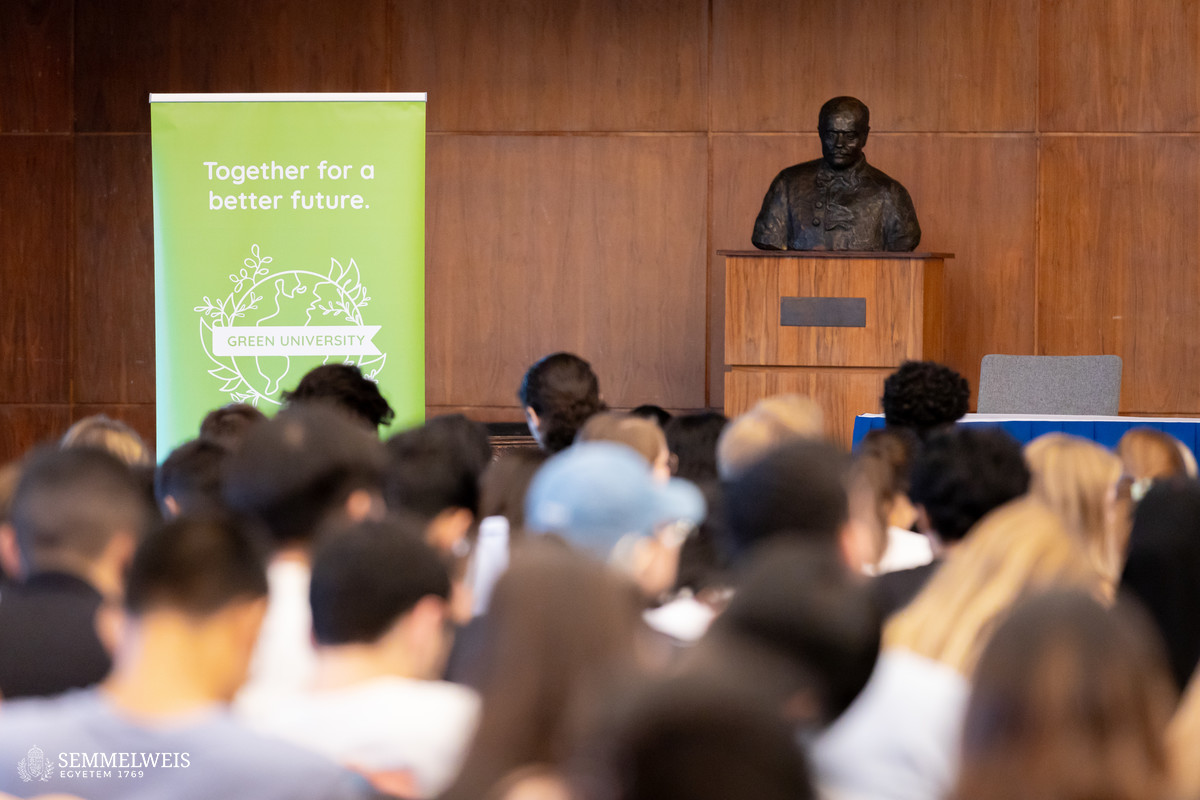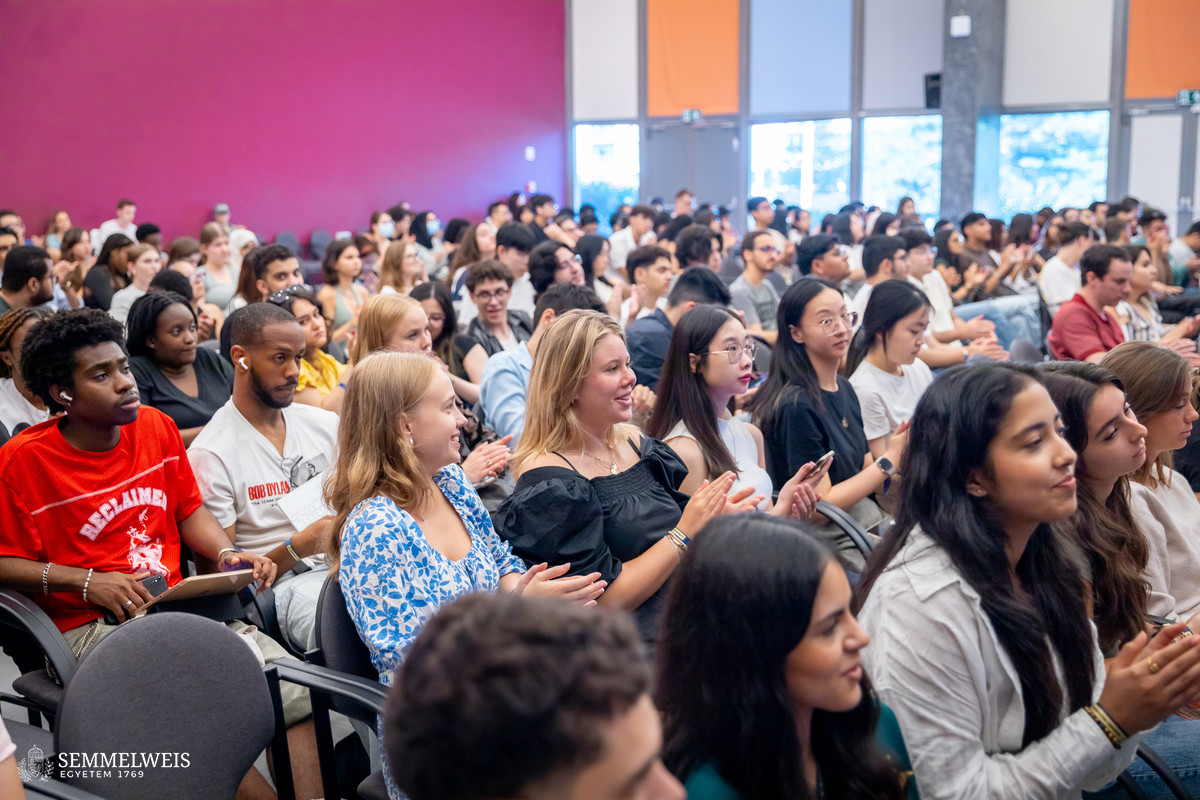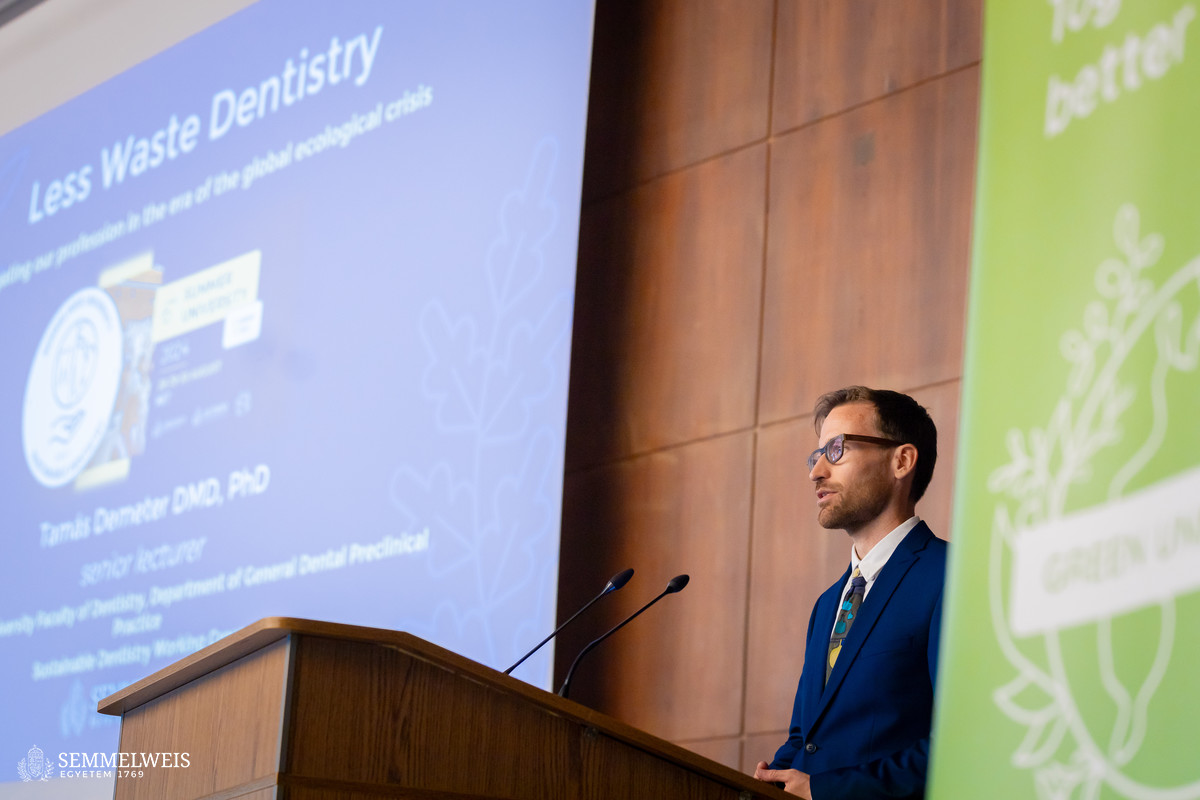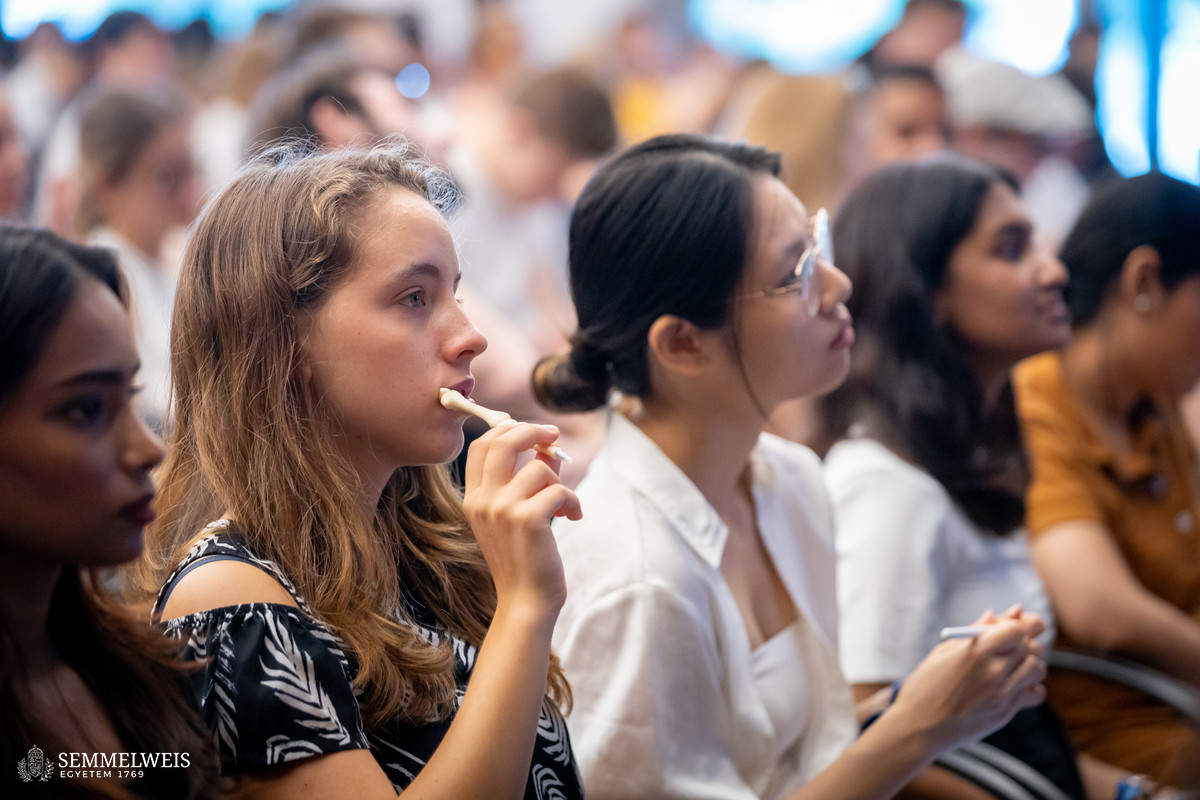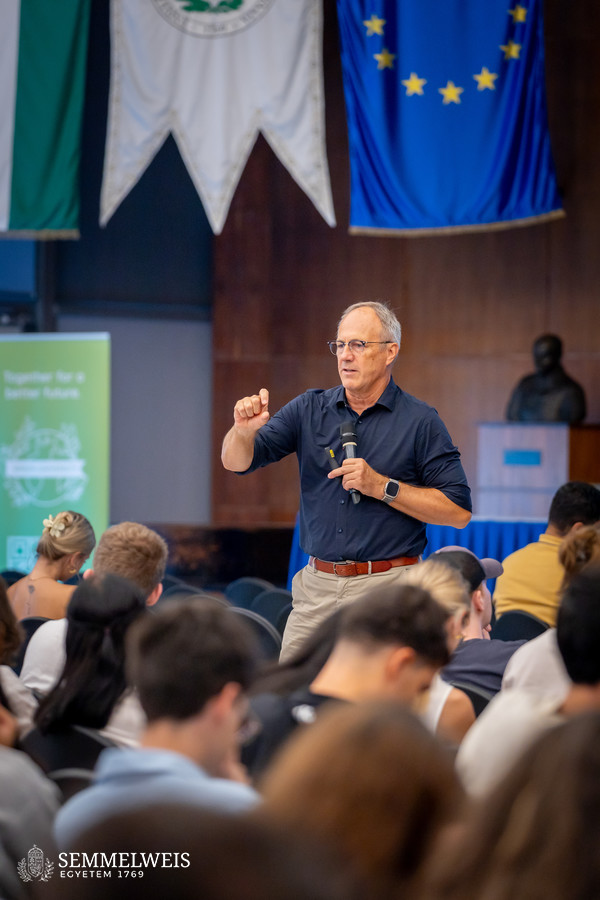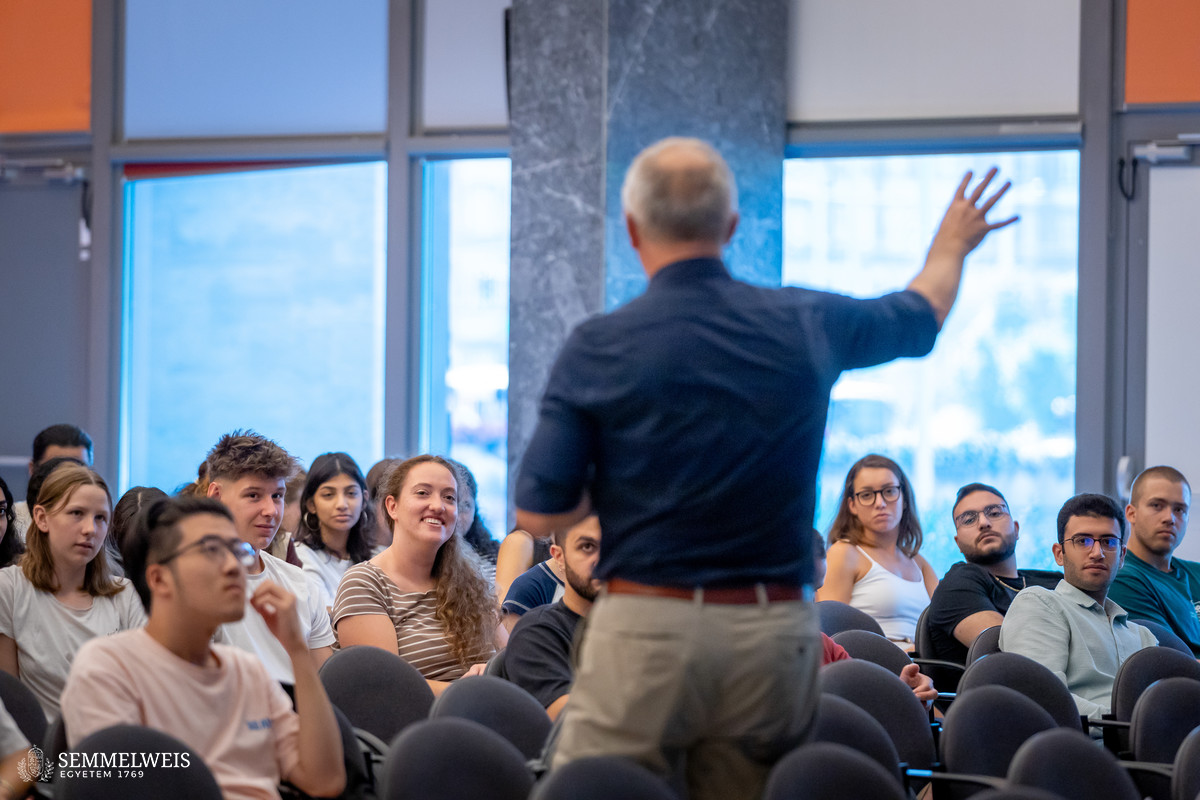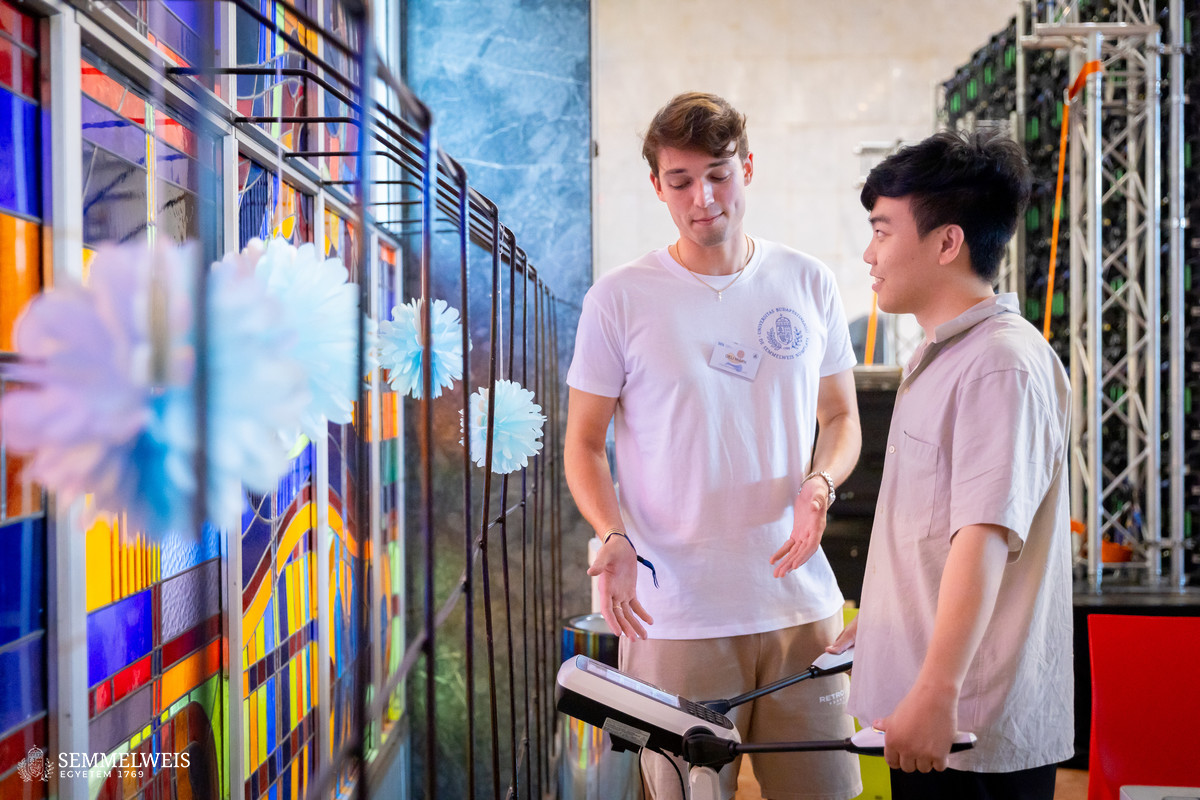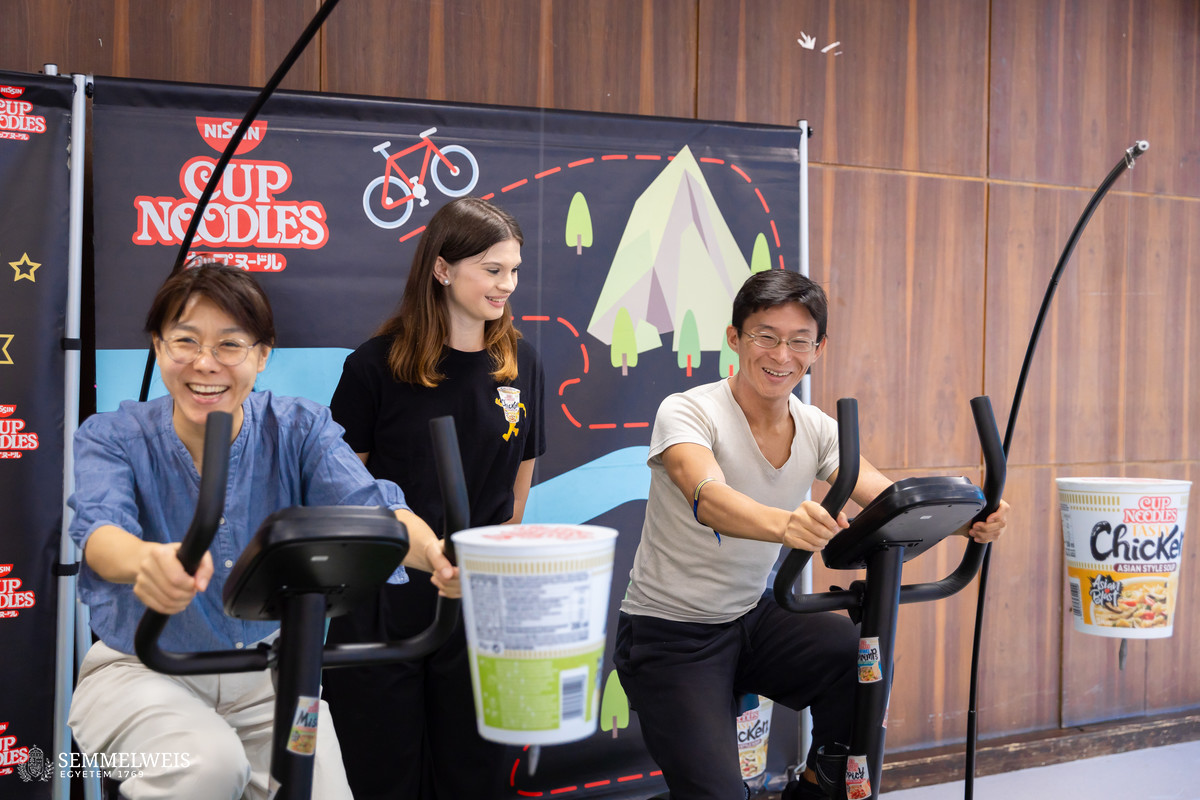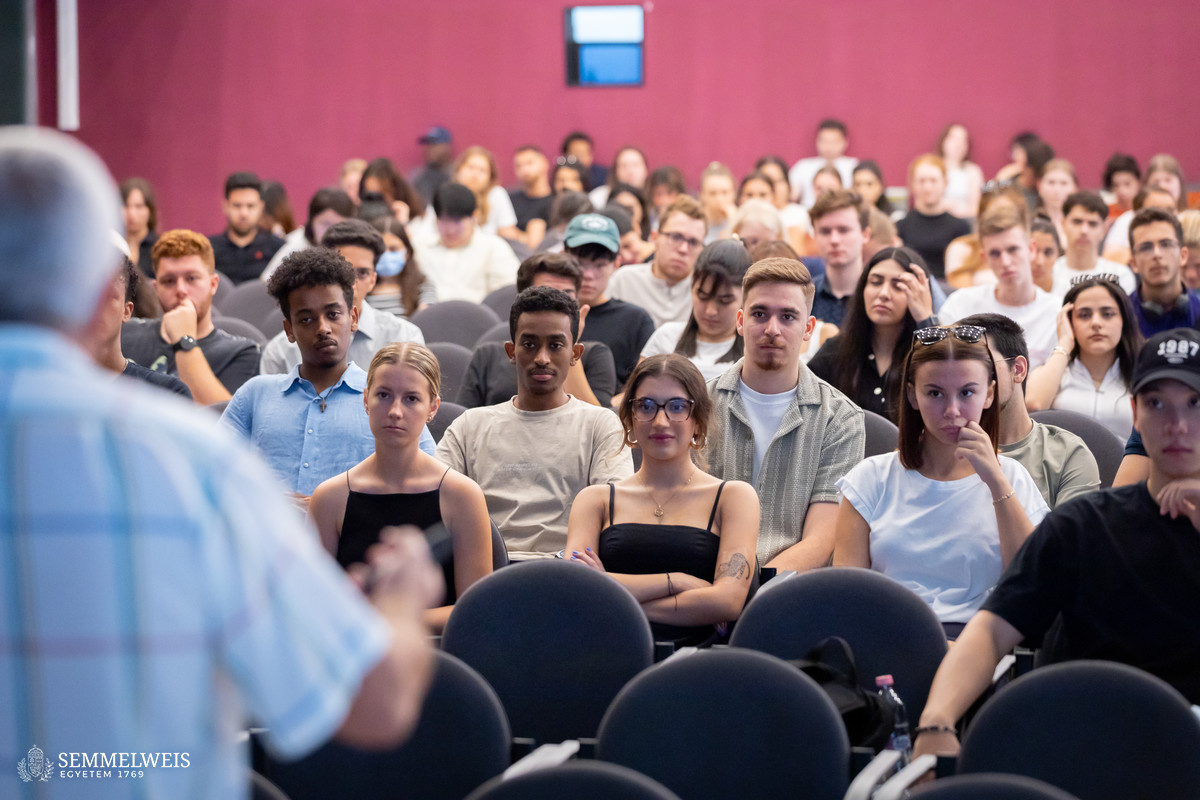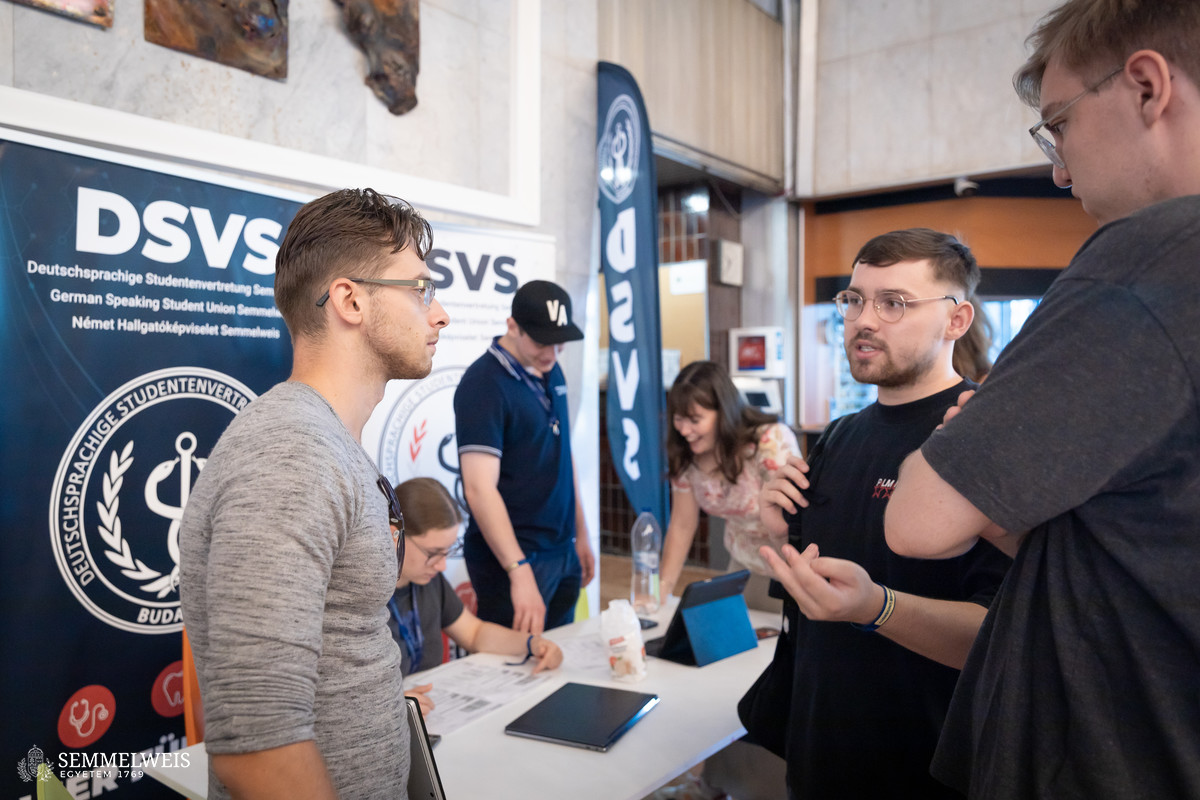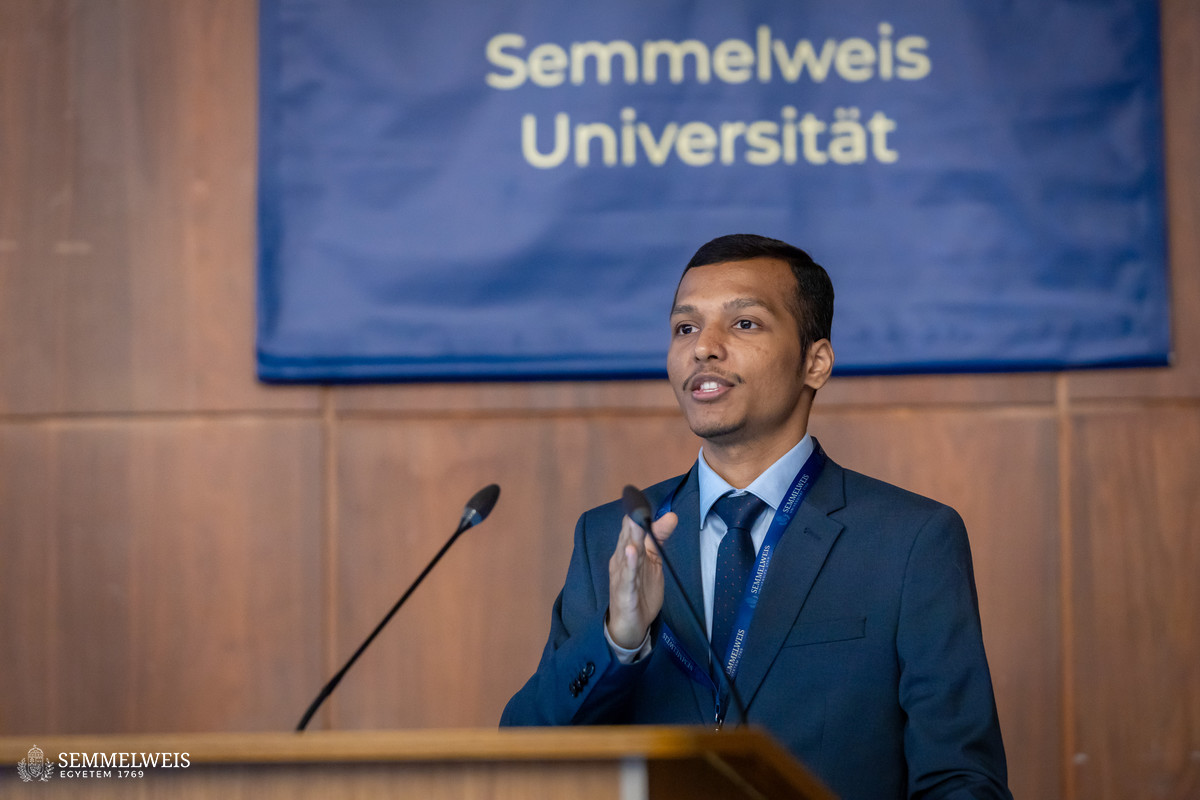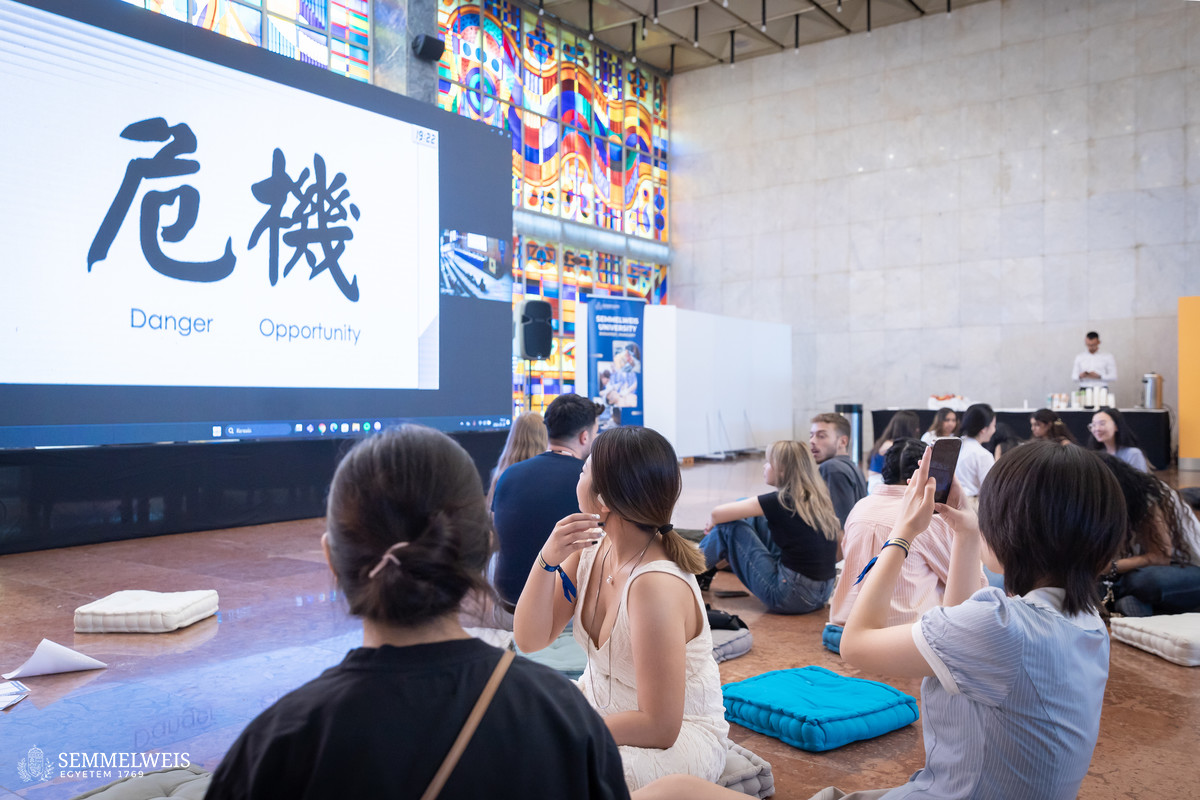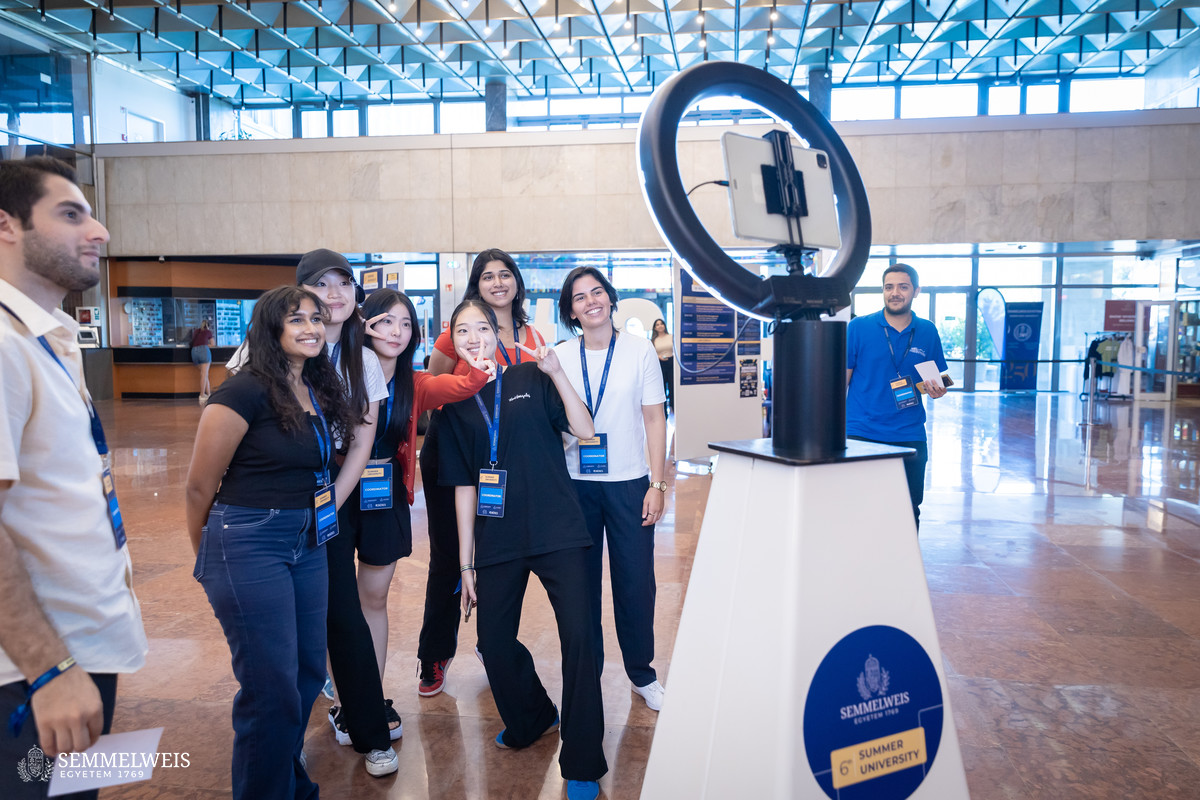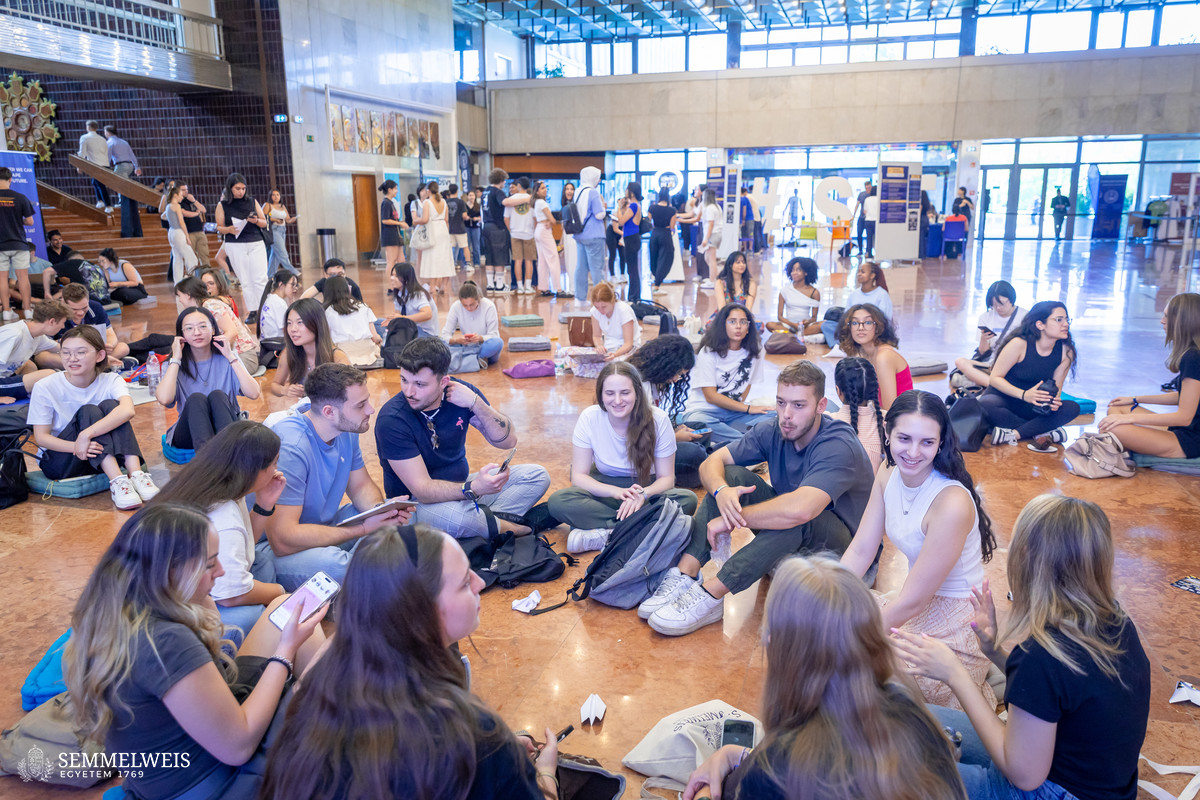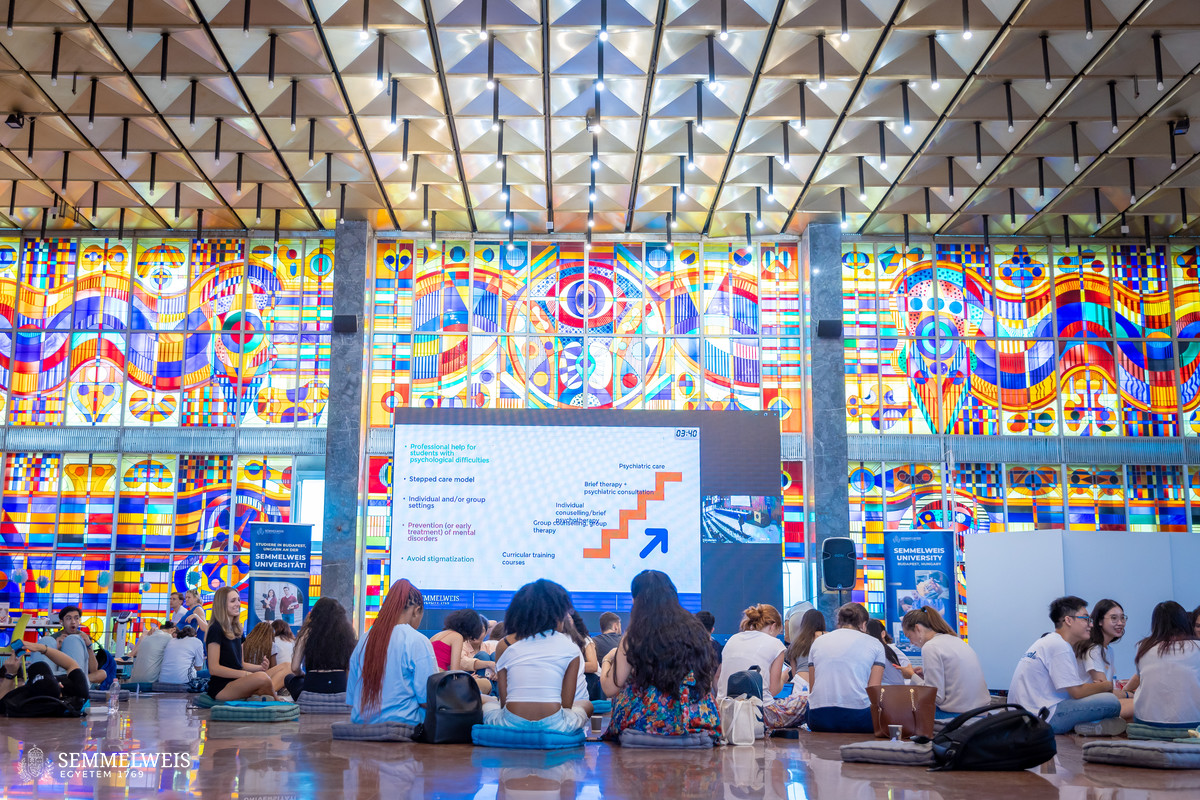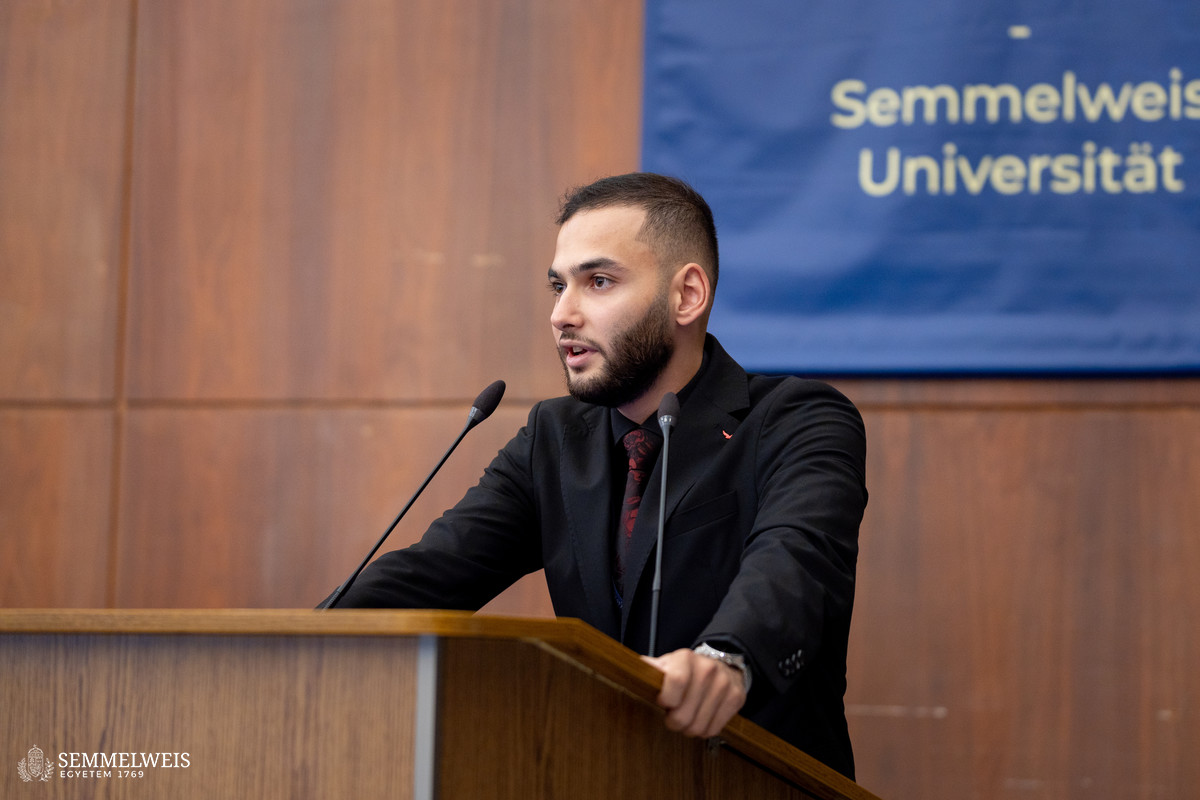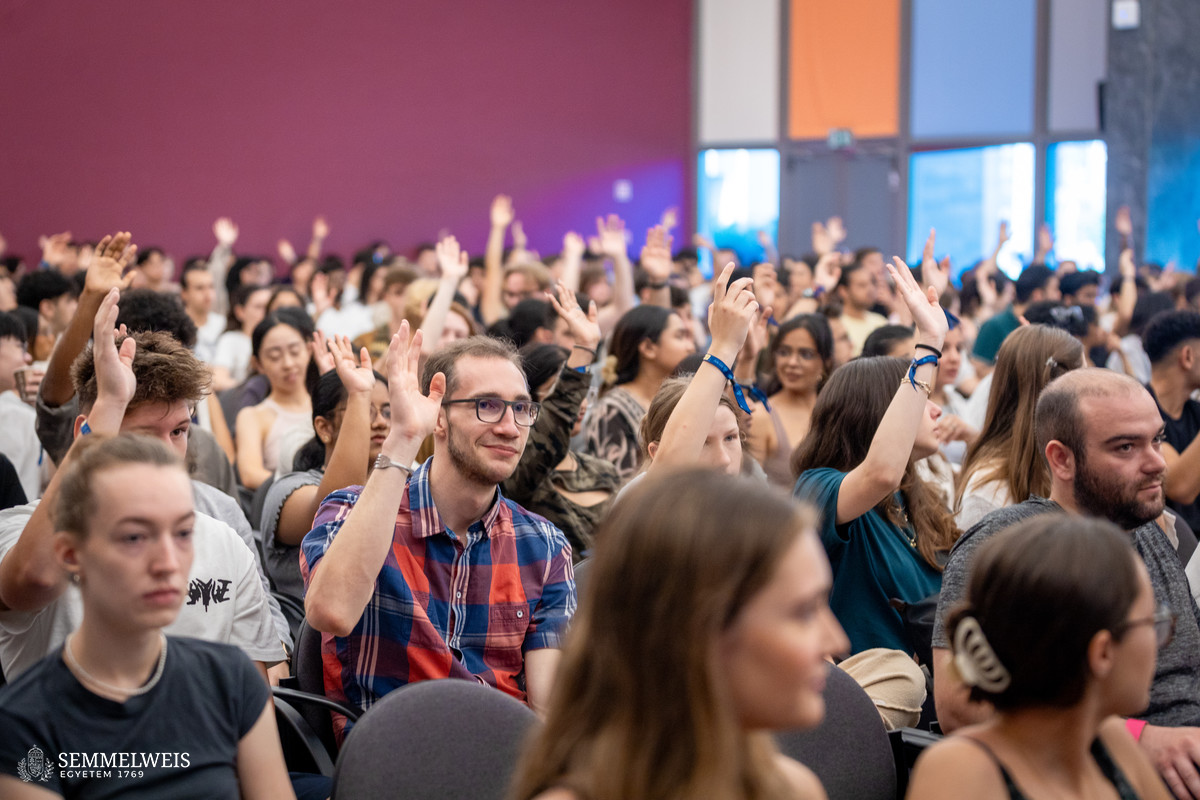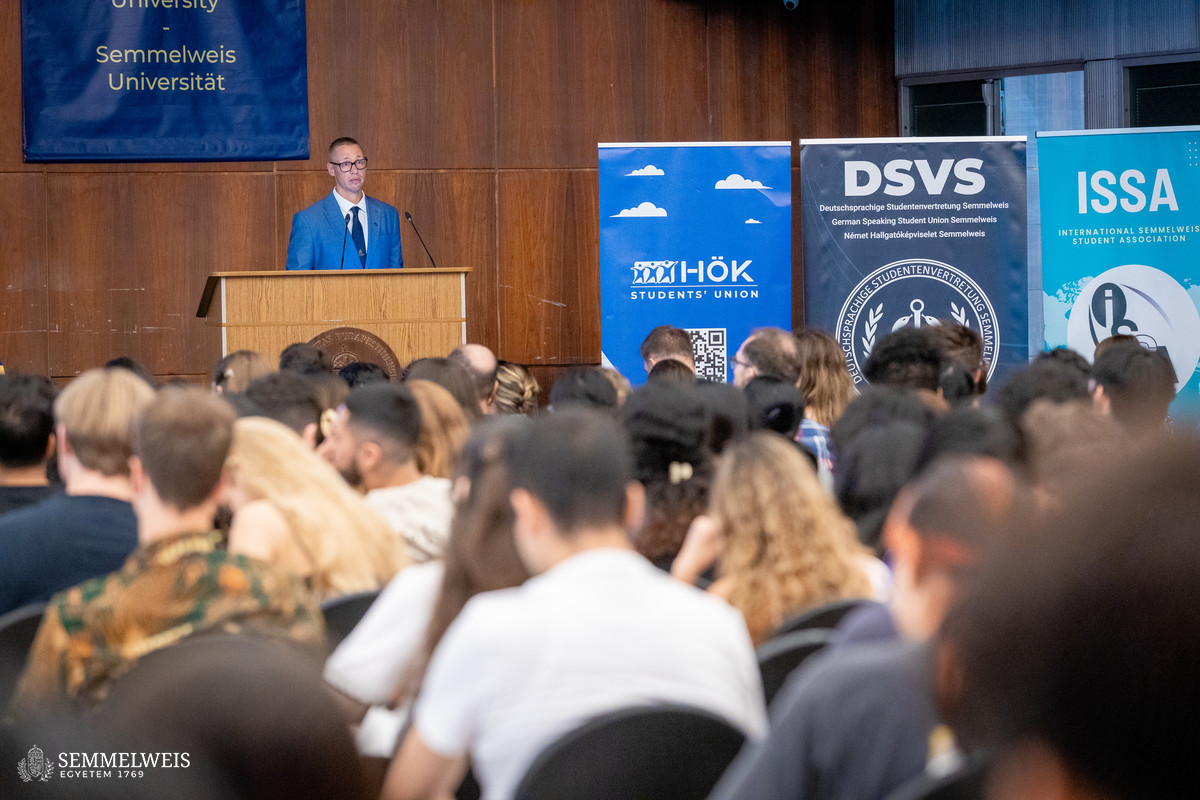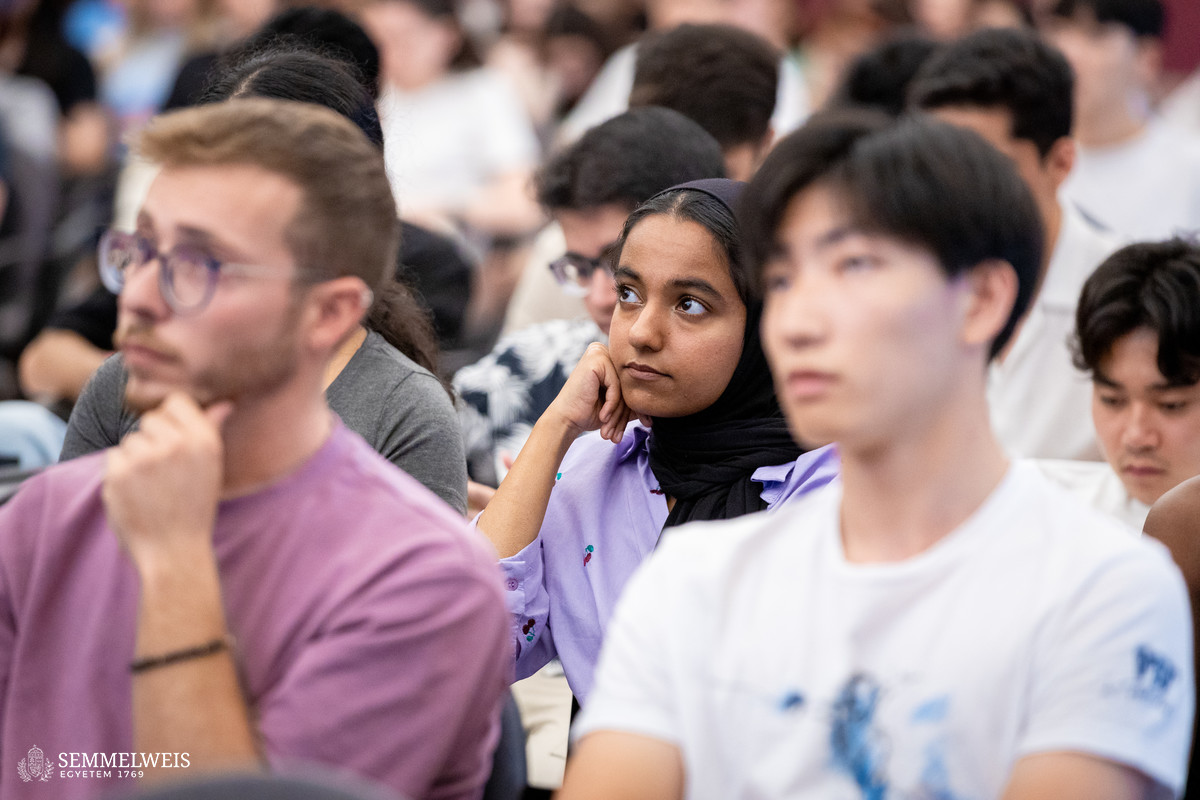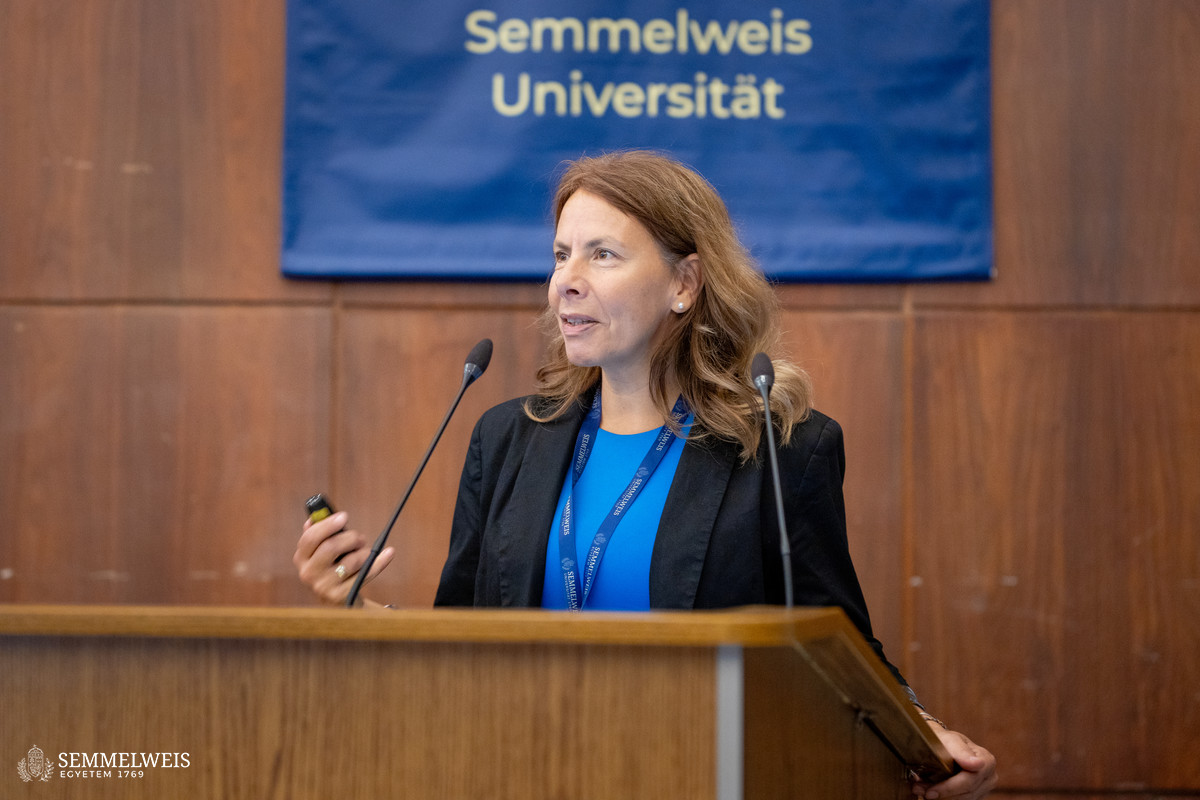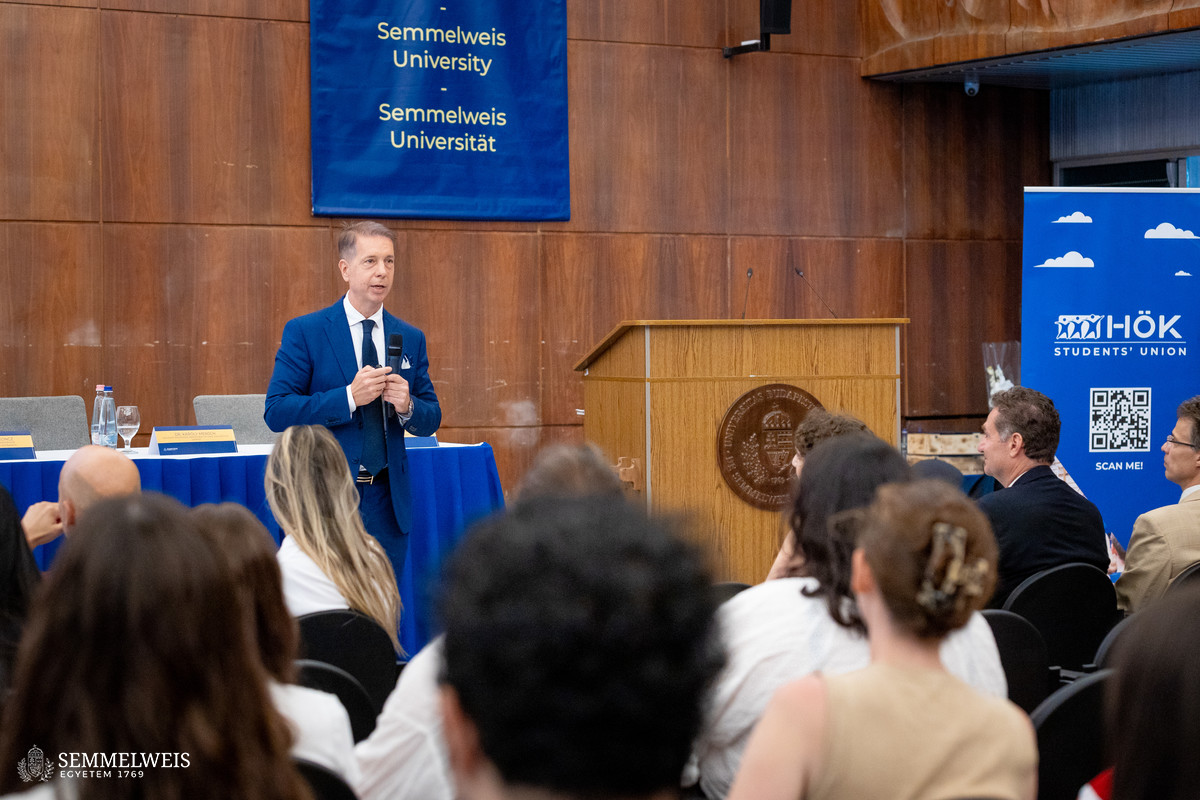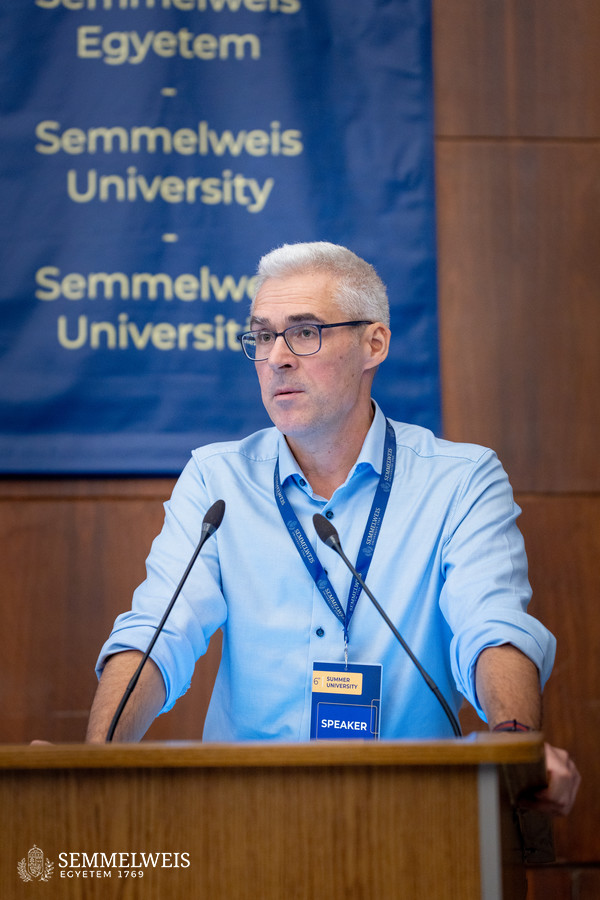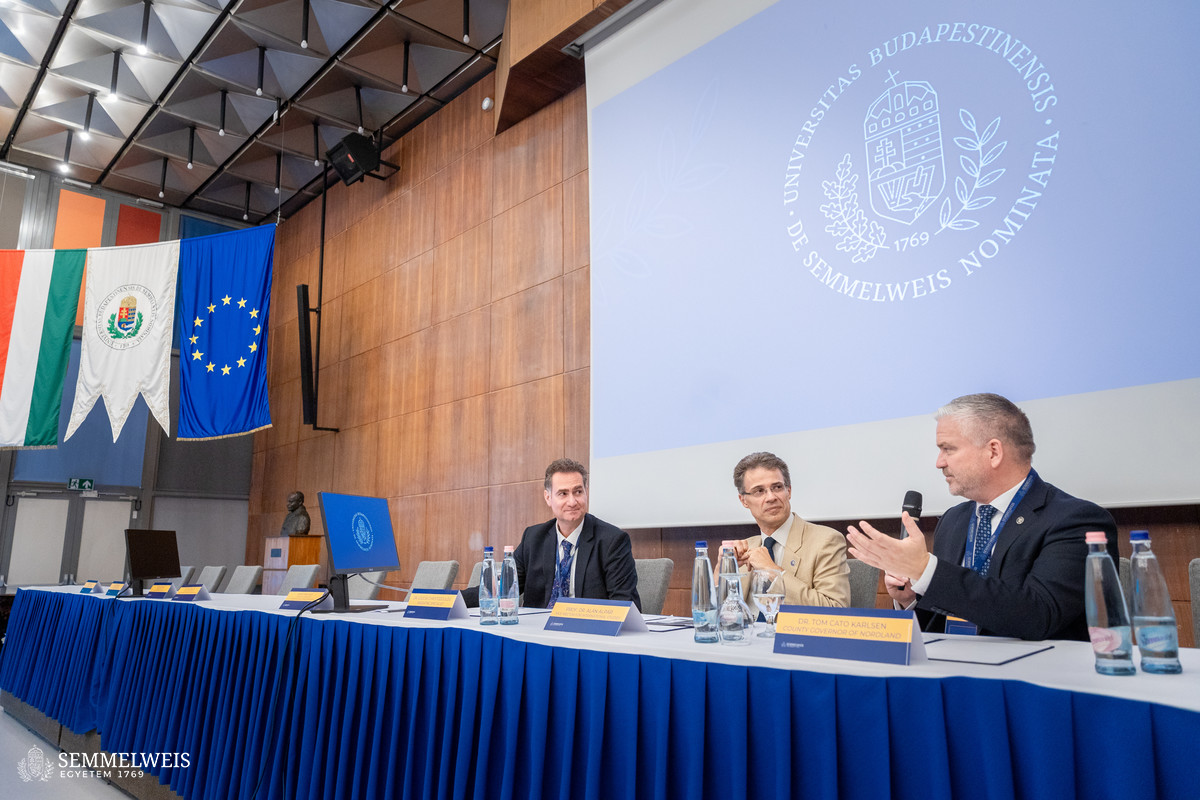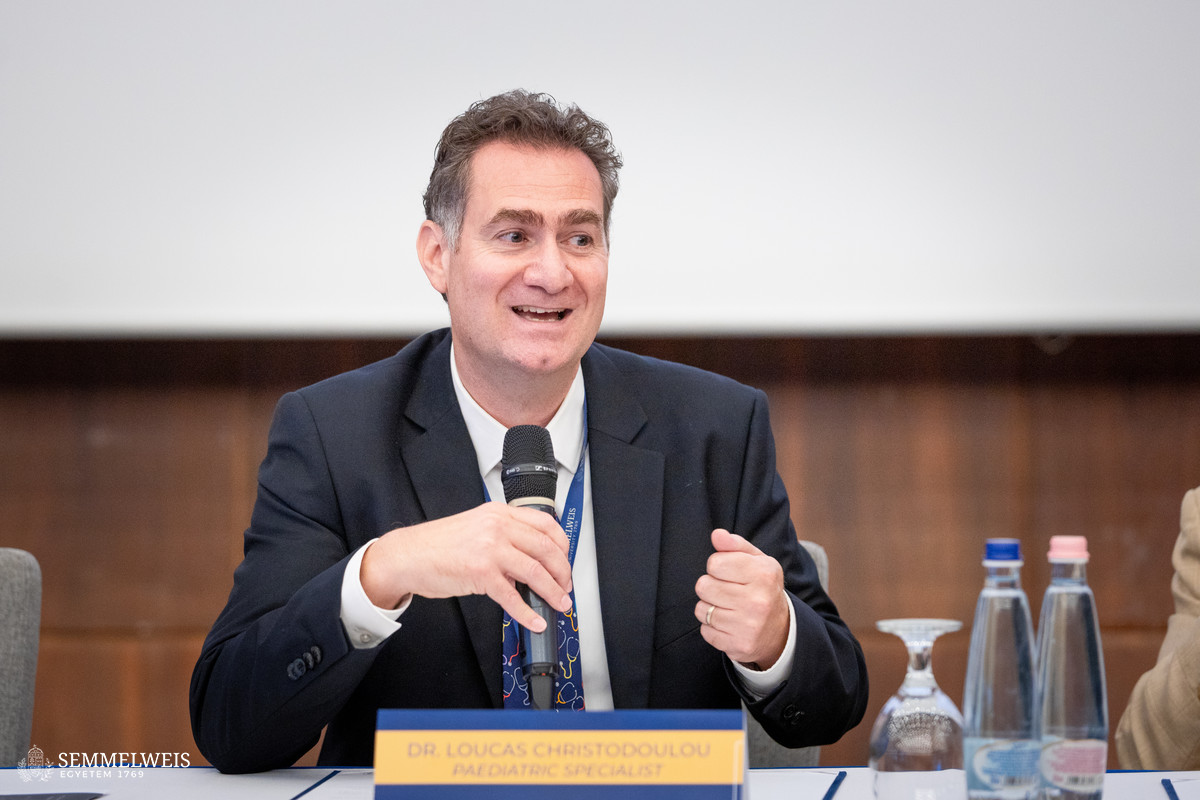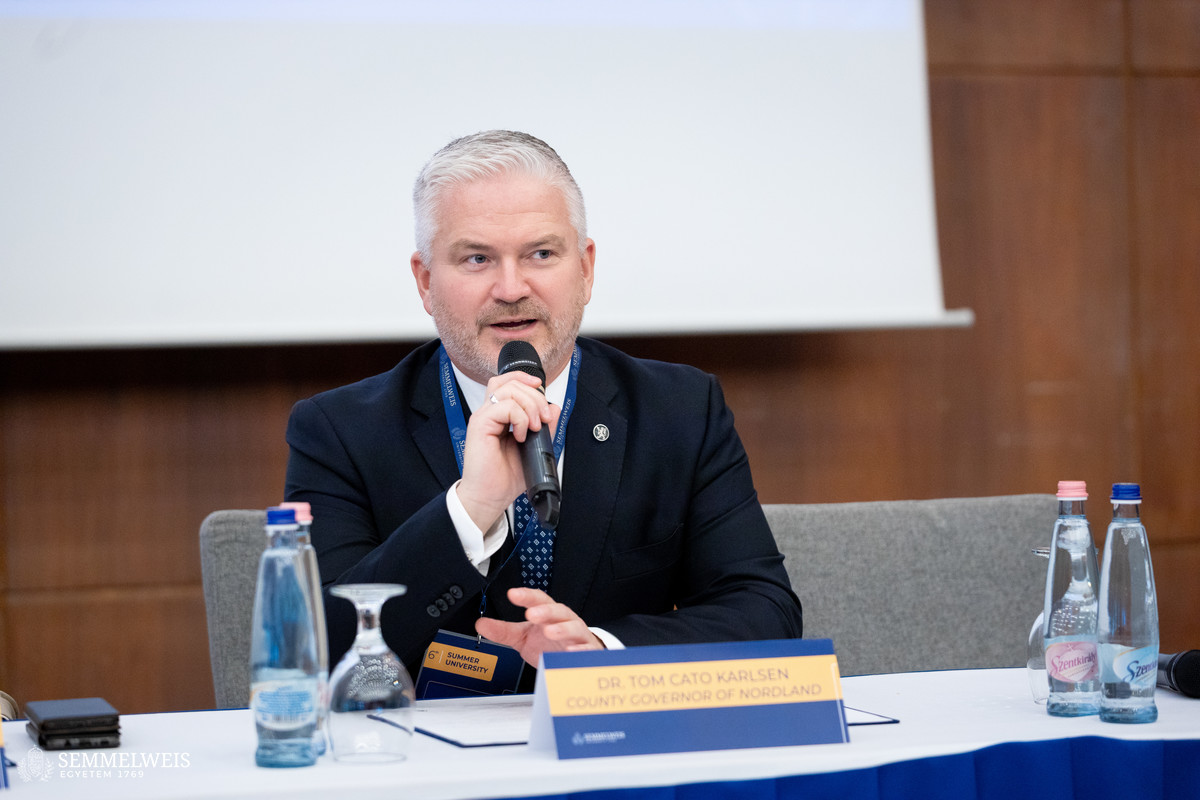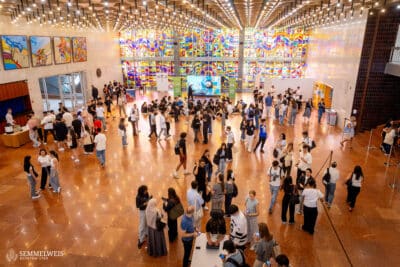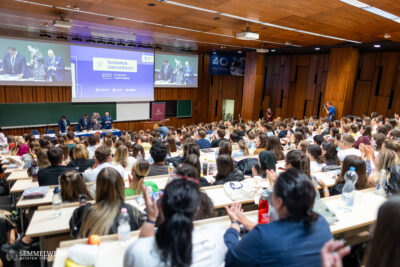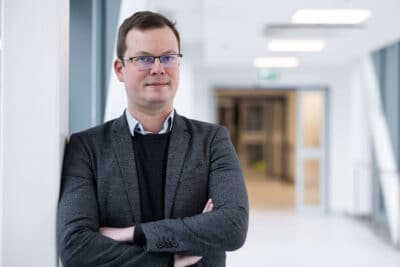In his opening speech on Day Zero, Dr. Alán Alpár, Vice-Rector for International Studies at Semmelweis University, pointed out that the proper knowledge of sustainability had to be acquired at university, as opposed to just looking for information on the Internet, a great part of which is unreliable. In order to give students the knowledge they need in this field, Semmelweis University started the Green University and Summer University Project, inviting professionals not only from the field of healthcare, but also from engineering, technology, management, and ecology. As Semmelweis students, you can never have a narrow mind, you have to maintain your interdisciplinarity through events such as Summer University, Dr. Alán Alpár stressed.
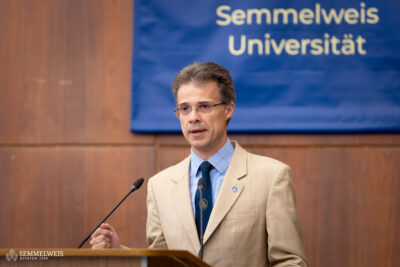 In addition to the vice-rector’s opening speech, Day Zero featured talks on various topics related to living a green life: values in electronic waste; less waste dentistry; sustainability and waste management in healthcare; the role of microorganisms in waste management; 4-day workweeks; (un)sustainability messages in popular Hollywood movies and series; microplastics in our diet; and green urban development practices. There was also a debate with three speakers on community-engaged learning.
In addition to the vice-rector’s opening speech, Day Zero featured talks on various topics related to living a green life: values in electronic waste; less waste dentistry; sustainability and waste management in healthcare; the role of microorganisms in waste management; 4-day workweeks; (un)sustainability messages in popular Hollywood movies and series; microplastics in our diet; and green urban development practices. There was also a debate with three speakers on community-engaged learning.
Day 1 started with opening remarks by Dr. Alán Alpár:
I have to begin with a confession: When I was a student, these two words together, ‘summer’ and ‘university’, did not mean anything to me. That is why I do appreciate that you attend this course before your studies begin.
He recalled that the Summer University was launched six years ago to demonstrate the importance of interdisciplinarity in medical studies, offering a wide array of extracurricular academic and cultural topics that reflect the students’ interests.
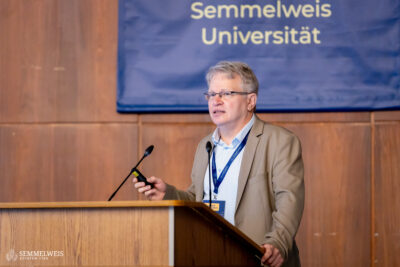 In his keynote presentation, Dr. Balázs Lendvai, Head of Richter Department at Semmelweis and Head of Pharmacology and Drug Safety Research at Gedeon Richter Plc., gave an overview of advanced research in the pharma industry in the field of the central nervous system. He started by summarizing the beginnings and the 20th-century evolution of the pharmaceutical industry in Hungary, which mostly produced medicine for the Hungarian and regional markets, with only one drug authorized in the United States. In his view, Gedeon Richter Plc. reached a historic milestone in 2003 with the development of a blockbuster molecule, cariprazine, the active compound of a drug with antipsychotic and antidepressant therapeutic effects, which managed to enter the US and EU markets in 2015 and 2017, respectively.
In his keynote presentation, Dr. Balázs Lendvai, Head of Richter Department at Semmelweis and Head of Pharmacology and Drug Safety Research at Gedeon Richter Plc., gave an overview of advanced research in the pharma industry in the field of the central nervous system. He started by summarizing the beginnings and the 20th-century evolution of the pharmaceutical industry in Hungary, which mostly produced medicine for the Hungarian and regional markets, with only one drug authorized in the United States. In his view, Gedeon Richter Plc. reached a historic milestone in 2003 with the development of a blockbuster molecule, cariprazine, the active compound of a drug with antipsychotic and antidepressant therapeutic effects, which managed to enter the US and EU markets in 2015 and 2017, respectively.
In the second part of his talk, Dr. Balázs Lendvai walked the audience through the timeline of pharma research and development, emphasizing that it was a lengthy process of at least 15 years, with an average of 5 years of preclinical and 10 years of clinical phases, which made it challenging to predict the market needs 15 years ahead.
While it used to be a common concept to have a huge publication as a starting point of R&D, experience has shown that this could not exclude the possibility of failure, he stressed. Therefore, Dr. Balázs Lendvai noted that the future direction was the innovation ecosystem concept, which had also been successfully established in Hungary.
In his closing remarks, he outlined the paradigm shift fueled by society’s pressure to prioritize novel drugs that offer remedies for diseases for which no medicine existed. He identified better translational research as a possible way out.
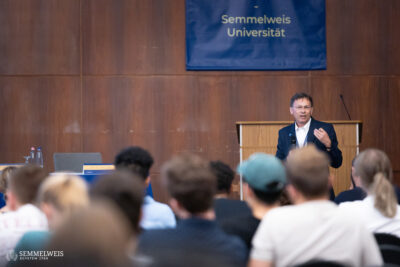 One of the key topics of this year’s International Summer University was mental health, with a lecture on time and stress management by Assistant Professor Dr. János Kollár and a talk by Dr. György Purebl, Vice-Dean for Educational Affairs and Head of the Institute of Behavioral Sciences, on mental health and mental health support. In his interactive presentation, Dr. György Purebl justified this choice of topic by identifying depression as the second most frequent cause of long-term disability, which affects 27 percent of medical students. Student mental health will also be one of the topics featured at the THE University Impact Forum: Health & Well-being 2024, jointly organized by Times Higher Education and Semmelweis University on September 19.
One of the key topics of this year’s International Summer University was mental health, with a lecture on time and stress management by Assistant Professor Dr. János Kollár and a talk by Dr. György Purebl, Vice-Dean for Educational Affairs and Head of the Institute of Behavioral Sciences, on mental health and mental health support. In his interactive presentation, Dr. György Purebl justified this choice of topic by identifying depression as the second most frequent cause of long-term disability, which affects 27 percent of medical students. Student mental health will also be one of the topics featured at the THE University Impact Forum: Health & Well-being 2024, jointly organized by Times Higher Education and Semmelweis University on September 19.
Inspired by student feedback, the two-day conference also offered a selection of academic topics, such as stroke management, oral inflammatory diseases, the therapeutic potential of psychedelic drugs, respiratory therapy, robotic surgery in urology, food allergy, cybersecurity, and anti-doping. The international audience was also able to enjoy a versatile introduction to Hungarian culture, language, tourism, and last but not least, wines.
Personal career stories also enriched the program, with Assistant Professor Dr. Arvin Shahbazi showing his journey from being an international student to becoming a dentist and faculty member at Semmelweis. Also, prominent Semmelweis alumni Dr. Loucas Christodoulou, Cypriot-born consultant pediatrician at Chelsea and Westminster Hospital (UK), and Dr. Tom Cato Karlsen, a Norwegian anesthesiologist and Governor of Nordland County, joined a roundtable discussion on career opportunities following graduation, chaired by Dr. Alán Alpár. Both speakers focused on the valuable opportunities provided by Semmelweis University to build a medical career, the lasting impact of their formative years in Budapest, and the benefits of being part of an increasingly international community of students.
Dr. Tom Cato Karlsen recalled the challenges of studying medicine at Semmelweis in the 1990s, emphasizing resilience and cultural adaptability, particularly in learning the difficult Hungarian language. He also elaborated on how medical studies had changed over time: The current generation of students had at their disposal a far greater variety of materials and technology than he had. At the same time, medical knowledge has also expanded rapidly since the 1990s, so students these days have to cover more material. What has remained unchanged is that without hard work, succeeding at Semmelweis University is impossible, he said.
Dr. Loucas Christodoulou discussed choosing Semmelweis over UK universities due to the school’s excellent reputation in Central and Eastern Europe as well as financial considerations. Inspired by Ignác Semmelweis, he admired the determination to bring about change and improve lives, emphasizing that every small effort could have a significant impact. His journey underscored the importance of fighting for one’s beliefs and remaining open to new paths.
Dr. Loucas Christodoulou concluded by saying that studying at Semmelweis University gave everyone strong foundations, pride, and confidence in their abilities and knowledge, which they would be able to rely on wherever they went.
The main sponsor of the event was Béres Pharmaceuticals.
Dr. Balázs Csizmadia, Judit Szabados-Dőtsch
Photos by Boglárka Zellei – Semmelweis University
